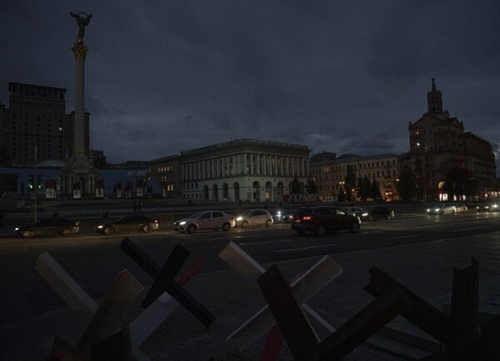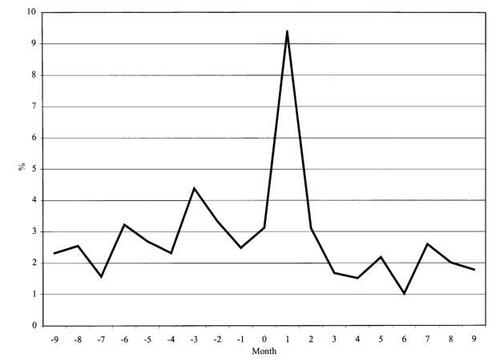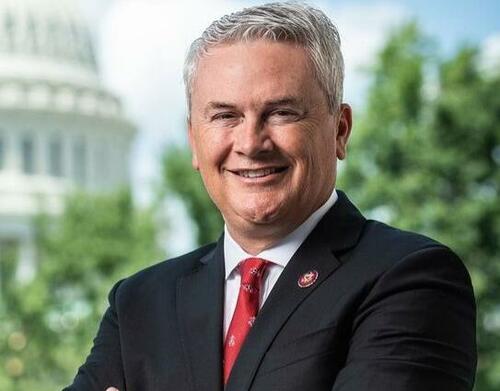Those who with God's help have welcomed Christ's call and freely responded to it are urged on by love of Christ to proclaim the Good News everywhere in the world.
Distinction Matter - Subscribed Feeds
-
Site: Voice of the Family
“Bowing down in blind credulity, as is my custom, before mere authority and the tradition of the elders, superstitiously swallowing a story I could not test at the time by experiment or private judgment, I am firmly of opinion that I was born on the 29th of May, 1874, on Campden Hill, Kensington.”1 It is […]
The post G K Chesterton, Joan of Arc and the merry month of May appeared first on Voice of the Family.
-
Site: Voice of the Family
“If anyone love me, he will keep my word.” From this Sunday’s epistle, we can see that even before the coming of the Holy Spirit upon the Church, there was already a feast called Pentecost. What did this Old Testament feast of Pentecost celebrate? Among other things, it was the day when the Jews commemorated […]
The post Keeping the commandments: sermon on Pentecost Sunday appeared first on Voice of the Family.
-
Site: Mundabor's blogMany of you probably don’t know the Eurovision contest. It is, or it was, a European competition with a system ( if I understand it correctly) of both viewers and “jurors” vote. This contest has – many years ago already – degenerated into a freak show, where the most astonishing nutcases try to get the […]
-
Site: Crisis Magazine

Legendary mutual fund manager Peter Lynch teaches that investors should “let their winners pay for their losers.” In other words, hold on to companies that show good financials and reasonable prospects for growth, regardless of the share price. If you see a stock go up 20-30 percent, don’t necessarily conclude that it’s time to sell. You have to forget about the price and reexamine the…
-
Site: Padre PeregrinoCum his qui oderant pacem, eram pacificus.—Psalm 119:7. Today is the 14th anniversary of my ordination to the priesthood. I am often reminded there is only One High Priest, Jesus Christ. We ministerial priests share in that priesthood both ontologically and by suffering as Christ suffered. The above picture was taken before or after a [...]
-
Site: Crisis Magazine

On Saturday, May 4, 2024, devout Christian, noted philosopher of science, and prominent proponent of Intelligent Design (ID) Dr. Stephen C. Meyer appeared on Piers Morgan Uncensored, in an episode titled “Can This Man PROVE That God Exists? Piers Morgan vs Stephen Meyer” (more about this interview below). In July of 2023, Meyer also appeared on arguably the most popular podcast in the world…
-
Site: Zero HedgeRail Union Warns German Train System Turning Into "Battleground" Thanks To Male MigrantsTyler Durden Wed, 05/15/2024 - 05:00
Authored by Paul Joseph Watson via Modernity.news,
The head of a German rail union warns that the country’s train system is turning into a “battleground” thanks to a wave of violence and intimidation being unleashed by male asylum seekers against female staff.
In an interview with Focus Online, Steffi Recknagel, the head of the Railway and Transport Union (EVG) in Thuringia, says that the average day is “sometimes life-threatening” for employees due to the sheer amount of abuse being dished out by migrants.
“I have an average of three employees sitting in my Erfurt office every week for legal advice. They were attacked, spat on, insulted, threatened or pushed,” said Recknagel, adding that female employees are being slapped, kicked, spat at and threatened with being stabbed by the ‘refugees’.
“The worst case was that a train attendant was threatened with a knife,” said Recknagel, adding that another was physically attacked from behind and “the air was knocked out of her.”
The union boss said that one stretch of the network was particularly bad, specifically the one frequented by Syrian, Afghan, and Turkish migrants from the local asylum center.
“I drive the Erfurt-Suhl route every day,” said Recknagel.
“And unfortunately, I have to say it like this: It is mostly young men from the initial reception center who misbehave completely on our trains. They always travel in groups and feel strong together.”
Instead of intervening when the migrants engage in violent or threatening behavior towards other passengers, train staff look the other way or even run and hide in locked compartments to avoid becoming the next victim.
“Our people are afraid, very afraid. We have employees who say: If these groups are on the train, then I won’t check tickets. Then, they say they’ll stay at the front with the train driver or lock themselves in their cabin until they get to a safe station and they get out,” said Recknagel.
She noted that nothing ever happens to the migrants who behave in such a manner, with the police largely powerless to step in.
A four page letter sent to Thuringia Prime Minister Bodo Ramelow (Left Party) complains that female workers have been subjected to “sexist insults and spit on in a disgusting manner,” which includes migrants flashing their genitals.
The letter notes that the chaos is almost entirely the responsibility of “people with a migration background,” including one incident where rival migrants fought a running battle, leaving an entire train compartment covered in blood.
“Our colleague had to continue the journey to the Suhl train station in fear of death and with a railcar that was heavily contaminated with human blood,” states the letter. “We don’t need to talk at this point about the psychological consequences for our still very young colleague and the passengers, given the scenes that could have come from a civil war zone!”
The letter goes on to vent fury about how Germans are being told to embrace “tolerance towards migrants” while being violently attacked by migrants.
“How can you expect citizens of this country to be open to the refugee policy that is being practiced when it happens — practically every day, and not just on public transport! — that we have to witness such violence, brutalization and absolute contempt for our laws and society?”
The Alternative for Germany (AfD), the country’s leading anti-mass migration party which the establishment is trying to ban, responded to the story by asserting, “The railway and transport union in Thuringia is sounding the alarm: Train attendants and railway employees are regularly attacked, spat on, insulted, threatened or beaten.”
As we recently highlighted, foreign migrant suspects are responsible for nearly 6 in 10 violent crimes in Germany according to new figures released by the federal government.
Despite comprising roughly 14.6 per cent of the population, foreign migrants were responsible for 58.5 per cent of all violent crimes.
* * *
Your support is crucial in helping us defeat mass censorship. Please consider donating via Locals or check out our unique merch. Follow us on X @ModernityNews.
-
Site: Zero HedgeEmergency Blackouts Introduced Across Ukraine As Temperatures DipTyler Durden Wed, 05/15/2024 - 04:15
Following several weeks of stepped-up Russian aerial attacks which have pummeled Ukraine's energy and electrical grid, state power operator Ukrenergo on Tuesday announced that rolling emergency blackouts have gone into effect across the country.
It comes amid a drop in temperatures which has served to further strain the grid. "From 21:00 to 24:00 (1800-2100 GMT), Ukrenergo is forced to introduce controlled emergency shutdowns in all regions of Ukraine," it stated on Telegram.
"The reason for this is a significant shortage of electricity in the system as a result of Russian strikes and increased consumption due to a cold snap," Ukrenergo added.
The Kiev region has for example seen the temperature drop into the 40s this week, and during the day has been in the 50s.
While likely there's been greater impact in harder hit parts of the war-ravaged country, especially in the east and south, the capital of Kiev saw at least 10% of households get disconnected Tuesday.
Reuters described that "Footage shared on social media from the western city of Lviv showed buildings in complete darkness in the city center and street lights switched off."
International report have further indicated blackouts hit Kharkiv and Donetsk and many other places, with predictions of increased disruptions throughout the late evening hours. Currently fighting is heaviest in these oblasts, and Russian forces are trying to establish a 10km deep buffer zone along the border in Kharkiv region.
The below video shows an area of Lviv in complete darkness as cars travel through the city center...
After massive attacks in Ukraine, there is a shortage of electricity power, outages are occurring and emergency schedules are being introduced
— DeepState Illuminate (@TheDeep_State6) May 14, 2024
▪️In the video, the Lviv Center is without light, the traffic lights are not working.
▪️In Lviv, Sumy, Volyn and Ivano-Frankivsk… pic.twitter.com/vViHJzl868Authorities are scrambling to find any way possible to meet demand:
Ukraine plans record electricity imports from five European countries on Monday after reporting significant energy infrastructure damage from Russian strikes, the energy ministry said.
Imports are expected to rise to 19,484 megawatt hours (Mwh), beating the record of 18,649 Mwh at the end of March after the first wave of Russian attacks on Ukraine's energy sector.
Ukraine forces have been keeping up their cross-border mortar and drone attacks, especially targeting Russia's own energy depots and oil facilities. Putin has vowed to hit back, and Russian strikes on Ukrainian cities have increased over the last month.
-
Site: AsiaNews.itThe appointment at the Ministry of Defence in Moscow of the economist Belousov (master of ceremonies of the Orthodox Church) in place of Šojgu seems to indicate a willingness to make the war industry the main engine of increasingly protracted conflicts. While the new energy minister - on whose activities 70% of Russia's GDP depends - is now Sergei Tsivilev, husband of Putin's niece.
-
Site: AsiaNews.itToday's news: Pyongyang laundered $147.5 million in stolen cryptocurrencies in March alone; Rosewood trade from Mozambique to China finances Islamic State militants;YouTube blocks "Glory to Hong Kong" videos as requested by local government;Israel and Egypt blame each other for closing the Rafah crossing and blocking aid.
-
Site: Zero HedgeNATO's Newest Member Open To Hosting Nuclear WeaponsTyler Durden Wed, 05/15/2024 - 03:30
The Swedish Prime Minister has said his country would be willing to host nuclear weapons during a war. The North Atlantic Alliance has a nuclear sharing program that has US nuclear weapons deployed in five countries. The Polish leader recently said he hopes Warsaw can one day join the program.
Swedish Prime Minister Ulf Kristersson said on Swedish public radio that Stockholm would be willing to do this only during wartime. "In a war situation it’s a completely different matter. It would depend entirely on what would happen," he explained "In the absolute worst-case scenario, the democratic countries in our part of the world must ultimately be able to defend themselves against countries that could threaten us with nuclear weapons."
Kristersson’s remarks came as Sweden hosted the leaders of Germany, Denmark, Finland, Norway, and Iceland to discuss deepening military ties.
"For decades, we have lived very peacefully and without very big threats to Europe. Personally, I think these times are over," Danish Prime Minister Mette Frederiksen said during the summit. "With all that we see from the Russian side, we are at the beginning of a new era. It would be wrong if we, as a government, said that you don’t have to deal with this in your everyday life."
Sweden is the newest member of NATO. When Stockholm first requested NATO membership, Russian President Vladimir Putin said Russia would not object to the move unless more weapons were deployed to Swedish territory.
"We do not have such problems with Sweden and Finland, which, unfortunately, we have with Ukraine. We have no territorial issues… no disputes… we have nothing that could bother us from the point of view of Finland’s or Sweden’s membership in NATO." Putin continued, "Only they should plainly and clearly realize that there were no threats before, now, if military contingents and infrastructure are deployed there, we will have to respond in a mirror manner and create the same threats to the territories from which threats are created to us."
The alliance has three nuclear weapon states, and the US stores weapons in five additional countries, including Italy, Turkey, Germany, Belgium, and the Netherlands. President Andrzej Duda expressed his willingness to make Poland the sixth country to host nuclear weapons.
"I must admit that when asked about [hosting nuclear weapons], I declared our readiness. Recently, [Russia] has been relocating its nuclear weapons to Belarus," he said. "If our allies decide to deploy nuclear weapons as part of nuclear-sharing also on our territory to strengthen the security of NATO’s eastern flank, we are ready for it."
You will find more infographics at Statista
At the time, a Russian government spokesman said the Kremlin would respond if NATO moved forward with Duda’s proposal. "The military will, of course, analyze the situation if such plans are implemented, and in any case will do everything necessary, [will take] all the necessary retaliatory steps to guarantee our safety," Dmitry Peskov explained.
-
Site: Zero HedgeWhere Wealth Is Concentrated In AfricaTyler Durden Wed, 05/15/2024 - 02:45
56 percent of Africa’s millionaires and over 90 percent of its billionaires lived in just five countries in 2023 - South Africa, Egypt, Nigeria, Kenya, and Morocco, according to The Africa Wealth Report 2024 published by Henley & Partners and New World Wealth. There were 135,200 people who owned wealth of 1 million U.S. dollars or more living in the continent that year, as well as 342 centi-millionaires worth $100 million or more and 21 billionaires.
As Statista's Anna Fleck shows in the following chart, South Africa had the highest number of so-called high net worth individuals (HNWIs) with 37,400 millionaires, 102 centi-millionaires and 5 billionaires. It was followed by Egypt with 15,600 millionaires, 52 centi-millionaires, and 7 billionaires, while Nigeria placed 3rd on the continent with 8,200 HNWIs. Rounding up the top ten were Kenya (7,200 millionaires), Morocco (6,800), Mauritius (5,100), Algeria (2,800), Ethiopia (2,700), Ghana (2,700), and Namibia (2,300).
You will find more infographics at Statista
Looking at the data in terms of cities, then South Africa’s Johannesburg comes first as the place with most HNWIs in Africa, with 12,300 millionaires, 25 centi-millionaires, and 2 billionaires, followed by Cape Town with 7,400 millionaires, 28 centi-millionaires, and 1 billionaire. Cairo in Egypt (7,200 millionaires), Nairobi in Kenya (4,400), and Lagos in Nigeria (4,200) also rank high on this basis.
According to Andrew Amoils, Head of Research at New World Wealth, another pattern in recent years is that a large number of high net worth individuals are moving abroad.
“According to our latest figures, approximately 18,700 high-net-worth individuals have left Africa over the past decade (2013 to 2023). There are currently 54 African born billionaires in the world, including one of the world’s richest, Elon Musk, but only 21 of them still live on the continent”, he said.
“Most of these individuals have relocated to the UK, the USA, Australia, and the UAE. Significant numbers have also moved to France, Switzerland, Monaco, Portugal, Canada, New Zealand, and Israel.”
Despite this, the report writers state that Mauritius, Namibia, Morocco, Zambia, Kenya, Uganda, and Rwanda are all expected to experience 80 percent millionaire growth, if not more, in the coming decade.
-
Site: Mises InstituteShould calling attention to war crimes be punishable by jail? You don’t have to be a libertarian to recognize that we can’t have a free society under the censorship this Act would impose.
-
Site: RadTrad Thomist
-
Site: The Remnant Newspaper - Remnant ArticlesOn April 10 this year, four Tibetans were arrested, detained, and supposedly beaten up by Chinese police while in detention as they had protested the Chinese Communist Party (CCP)’s land grab in Markham county in Chamdo, or Changdu in Chinese, located in the Tibet Autonomous Region, based on a report by Radio Free Asia (RFA).
-
Site: Mises InstituteDespite the media definitions of the Trump trial as a “hush money trial,” the actual criminal charges are contrived and legally unprecedented. This is a show trial.
-
Site: The Unz ReviewNo one in the anti-genocide movement is calling for a general strike, a worker's revolt or disruptive acts of civil disobedience. What they're asking for is a ceasefire and divestment in any company that is profiting from Israel's war in Gaza. These are reasonable requests and entirely appropriate. The problem is that the students making...
-
Site: The Unz Reviewsource: @ScottMGreer on X Scott Greer has a recent YouTube podcast Don’t Take the Welfare Pill, denouncing the embrace of welfarism on the dissident right. Greer is a reactionary and an elitist who promotes White identity based on preppy WASPs and fraternities. While a degree of elitism is needed, the reality is that country club...
-
Site: The Catholic Thing
 Many Catholics who love church tradition have been dispirited by the current papacy. But lately, in both Rome and the United States, conversations with well-informed Catholics indicate the old conservative confidence has made a comeback. Is the Francis era a “last gasp” for the Catholicism of the Baby Boomer era?
Many Catholics who love church tradition have been dispirited by the current papacy. But lately, in both Rome and the United States, conversations with well-informed Catholics indicate the old conservative confidence has made a comeback. Is the Francis era a “last gasp” for the Catholicism of the Baby Boomer era?
The post Can conservative and liberal Catholics coexist? appeared first on The Catholic Thing.
-
Site: The Catholic Thing
One of the crowd went up,
And knelt before the Paten and the Cup,
Received the Lord, returned in peace, and prayed
Close to my side; then in my heart I said:“O Christ, in this man’s life –
This stranger who is Thine – in all his strife,
All his felicity, his good and ill,
In the assaulted stronghold of his will,“I do confess Thee here,
Alive within this life; I know Thee near
Within this lonely conscience, closed away
Within this brother’s solitary day“Christ in his unknown heart,
His intellect unknown—this love, this art,
This battle and this peace, this destiny
That I shall never know, look upon me!“Christ in his numbered breath,
Christ in his beating heart and in his death,
Christ in his mystery! From that secret place
And from that separate dwelling, give me grace.”The post The Unknown God appeared first on The Catholic Thing.
-
Site: The Catholic Thing
 Massimo Faggioli’s recent Commonweal essay is heavy on bombastic rhetoric and very light on data, arguments, and substance. To be sure, Bishop Joseph Strickland is a Trump supporter, but it’s false to suggest Bishop Robert Barron is, which is why Word on Fire threatened a lawsuit and Commonweal edited out the Barron reference. Good on Word on Fire for saying the bullies must either fight or get out of the schoolyard. And shame on Commonweal for fueling the false narrative of a surging movement of “backwardist” American Catholic deplorables and their alleged “axis” with Trump.
Massimo Faggioli’s recent Commonweal essay is heavy on bombastic rhetoric and very light on data, arguments, and substance. To be sure, Bishop Joseph Strickland is a Trump supporter, but it’s false to suggest Bishop Robert Barron is, which is why Word on Fire threatened a lawsuit and Commonweal edited out the Barron reference. Good on Word on Fire for saying the bullies must either fight or get out of the schoolyard. And shame on Commonweal for fueling the false narrative of a surging movement of “backwardist” American Catholic deplorables and their alleged “axis” with Trump.
The post On Faggioli’s feverish “Trump-Strickland-Barron” fantasy appeared first on The Catholic Thing.
-
Site: The Catholic Thing
 A court in Mexico has thrown out an attempt by a transgender activist to force the Catholic Church to doctor baptismal records to reflect a “change” of sex. The Twenty-second Federal Circuit Court of Appeals upheld the constitutional rights of the Diocese of Querétaro to refuse to alter church records according to a transgender individual’s self-identification.
A court in Mexico has thrown out an attempt by a transgender activist to force the Catholic Church to doctor baptismal records to reflect a “change” of sex. The Twenty-second Federal Circuit Court of Appeals upheld the constitutional rights of the Diocese of Querétaro to refuse to alter church records according to a transgender individual’s self-identification.The post Mexico: court rules Church need not revise baptismal certificates for transgender people appeared first on The Catholic Thing.
-
Site: The Catholic Thing
 In an interview with Sage Steele last week, independent presidential candidate Robert F. Kennedy Jr. backed full-term abortion. In a more recent X post, he conceded to some restrictions on abortion once a fetus reaches viability, which occurs around 23 to 24 weeks of pregnancy. He had told Steele that late-term abortions were always medically necessary, but now says, “I’ve learned that my assumption was wrong.”
In an interview with Sage Steele last week, independent presidential candidate Robert F. Kennedy Jr. backed full-term abortion. In a more recent X post, he conceded to some restrictions on abortion once a fetus reaches viability, which occurs around 23 to 24 weeks of pregnancy. He had told Steele that late-term abortions were always medically necessary, but now says, “I’ve learned that my assumption was wrong.”The post JFK Jr. walks back full-term abortion position appeared first on The Catholic Thing.
-
Site: The Catholic Thing
Eleven years into his pontificate, Francis remains popular among Americans who identify as Catholic. Some 75 percent of self-described Catholics in this country have a positive view of the Holy Father. This shouldn’t be a surprise. His care for the poor and marginalized, his concern for the environment, and his witness to peace have widespread appeal.
But as with all modern leaders, Francis is not without critics. His past comments about “backward-looking” and “reactionary” attitudes in American Catholic life have caused resentment among some faithful Catholics. And his view of Church leadership in the United States – often perceived as negative – has perplexed American bishops who, as a body, have a long record of loyalty and generosity to the Holy See.
A possible pastoral visit to the United States in the Fall, recently reported in a French Catholic newspaper, would be welcomed and could be an opportunity for the Holy Father to see the Catholic Church here in a different light.
On the matter of bishops, I have some experience. A Catholic convert in my college years, I went on to be ordained a priest and served for a decade in Rome as an official in the Vatican’s Congregation (now Dicastery) for Bishops, the office tasked with evaluating and recommending men for the episcopate. The work was largely bureaucratic. It consisted of research, reports, meetings, correspondence, and related staff duties. But it was a thorough education in the strengths and potential problems in the selection process for ministry as a bishop.
Based on what I saw and staffed, the process was and remains sound; not perfect, but nonetheless objective in essence, with plenty of checks and balances along the way. It’s strictly confidential, which precludes public lobbying, campaigning, and political maneuvering – at least in the manner so common in the secular world. It’s also highly consultative, involving 25-40 clergy, and consultations with lay men and women familiar with a candidate under consideration. All of this is governed by canon law and directed by the Apostolic Nuncio, the papal ambassador, in each country.
I’ve been away from Rome now for nearly two decades. I’ve experienced the selection process from its other end. I’ve served as a bishop in the United States for the past 16 years, both as an auxiliary and now as an Ordinary, the bishop in charge of a diocese.
No matter what a man knows in advance, the ministry of a local bishop is a surprise and a challenge. Whatever social prestige Catholic bishops once enjoyed is long gone. The clergy abuse crisis buried it. Today the reality can be quite the opposite. But this is not finally a loss, because true Christian leadership is a “privilege” only insofar as involves service to others in a spirit of humility.
 American Bishops at the Fall 2023 Plenary Assembly in Baltimore [USCCB photo]
American Bishops at the Fall 2023 Plenary Assembly in Baltimore [USCCB photo]
In my case, life as a bishop has been a blessing, because my brother U.S. bishops have been overwhelmingly good, committed men. They have very different skills and personalities. All have strengths and weaknesses. None of them is close to perfect. But they’re faithful to the Church and devoted to their people. They’re also unquestionably loyal to Pope Francis, which makes his ambiguities and seeming criticisms difficult to understand.
So what’s the point of these thoughts?
Simply this. Before the Holy Father makes his next visit to the United States, I’d ask him to spend a little time familiarizing himself with the real terrain of American Catholic life, because so much of it is hopeful and good despite the many challenges we face. As one of my brother bishops notes in the recent book True Confessions: Voices of Faith from a Life in the Church (Ignatius, 2024):
There’s a great hunger for beauty [among our nation’s Catholics]. The sacramental imagination is still alive. And if you feed that imagination – people’s need for something sacred and true, something beautiful and greater than themselves – and combine it with active outreach and social ministry, the results are impressive. It gives me a lot of hope. When you watch [our] young parents and children get all excited as they discover Jesus Christ in his Church, you realize that the same message was preached 20 centuries ago, and it still has enormous impact, despite all of the world’s distractions and changes in culture and technology. The Lord continues to do his work, and the work still bears fruit. We just need to be nimbler in addressing the challenges that are coming our way. And we need to be more willing to speak the truth. . .even when it’s not welcome; even when it has a cost.
The men in our country who accept an appointment as bishop today, are, by and large, men who know full well that they will suffer. They’re men who are ready to carry the cross of Christian leadership and have prepared themselves through deep prayer, faithful theological formation, and pastoral experience in the trenches. Their eyes are wide open to the social and cultural toxicity of our times.
While the future will not be easy, they were made for these times. And those who are chosen and who accept the call to serve as a bishop, are, in my estimation, zealous for the task. They need – and they deserve – encouragement, clarity, and support from the man who holds the Office of Peter. Pope Francis can provide all three. We should hope and pray that he will do exactly that.
The post On the Ministry of America’s Bishops appeared first on The Catholic Thing.
-
Site: AntiWar.com
Ultimately, there is no mystery as to why the Forever Wars go on endlessly. Or why at a time when Uncle Sam is hemorrhaging red ink a large bipartisan majority saw fit to authorize $95 billion of foreign aid boondoggles that do absolutely nothing for America’s homeland security. To wit, Washington has morphed into a … Continue reading "Washington DC: The Unaffordable and Unecessary War Capital of the World"
The post Washington DC: The Unaffordable and Unecessary War Capital of the World appeared first on Antiwar.com.
-
Site: The Unz ReviewWestern Civilization has long been under attack by its own intellectuals and professors. Is there anything left of it? I defend Western Civilization, but Is there any civilization left to defend when the leaders of Western governments endorse Genocide not only of the Palestinians but of their own white ethnicities and brand criticism of Palestinian...
-
Site: The Unz ReviewPerhaps all of Western socio-political history can divided into three eras: Pre-Darwinian, Darwinian, and post-Darwinian. The first period consisted of the millennia before the publication of Charles Darwin’s On the Origins of Species (1859) when men intuitively understood the importance of blood and breed, monarchy and aristocracy being the dominant ideologies. Then in the late...
-
Site: The Unz ReviewJames Fulford writes: This was written in 1989 by Peter Brimelow while he was still a British subject living in New York, to explain the American gun issue to the readers of the London Times. It covers two violent periods in American history—the nationwide “peace” riots that supported the Viet Cong—and led to Peter himself...
-
Site: AntiWar.com
This originally appeared on May 15, 2015 Many of us have heard the song, most of those probably know its famous backstory: “Tin soldiers and Nixon’s coming/We’re finally on our own/This summer I hear the drumming/Four dead in Ohio” sang Crosby, Stills, Nash, and Young in 1971. The Kent State shootings – done by National … Continue reading "Jackson State and Forgotten History"
The post Jackson State and Forgotten History appeared first on Antiwar.com.
-
Site: AntiWar.com
On May 8, 2024, as Israel escalated its brutal assault on Rafah, President Biden announced that he had “paused” a delivery of 1,700 500-pound and 1,800 2,000-pound bombs, and threatened to withhold more shipments if Israel went ahead with its full-scale invasion of Rafah. The move elicited an outcry from Israeli officials (National Security Minister … Continue reading "The Arsenal of Genocide: The US Weapons That Are Destroying Gaza"
The post The Arsenal of Genocide: The US Weapons That Are Destroying Gaza appeared first on Antiwar.com.
-
Site: Zero HedgeMass Starvation: Here's Why Most Of America Is Completely UnpreparedTyler Durden Tue, 05/14/2024 - 23:40
Authored by Brandon Smith via Alt-Market.us,
The concept of mass starvation has not been in the forefront of American society for a very long time. Even during the Great Depression the US was majority agrarian and most people knew how to live off the land. In fact, the US has never suffered a true national famine. There have been smaller regional instances of famine (such as during the Dust Bowl in the 1930s), but nothing coming remotely close to the kinds of famines we have seen in Asia, the Eastern Bloc, Africa or the Middle East in the past 100 years.
Even Western Europeans dealt with major famines during the World Wars (like the Dutch Famine) and that experience has left an imprint on their collective consciousness. Most Americans, on the other hand, don’t get it. Because we have lived in relative security and economic affluence for so long the idea of ever having to go without food seems “laughable” to many people. When the notion of economic collapse is brought up they jeer and call it “conspiracy theory.”
Compared to the Great Depression, the US population today is completely removed from agriculture and has no idea what living off the land means. These are not things that can be learned in a few months from books and YouTube videos; they require years of experience to master.
I will say that things have changed dramatically in the past two decades I have been writing for the liberty media. When I started back in 2006 the preparedness movement was incredibly small and often people were afraid to broach such topics in public forums.
In the past several years preparedness culture has EXPLODED in popularity. Millions of Americans are now dedicated survival experts with extensive preps and firearms training. Prepping and shooting is no longer the realm of tinfoil hat “crazies”, now it’s considered cool.
The credit crash of 2008-2009 certainly helped wake people up to the reality of economic instability in the US. Then the covid pandemic, the lockdowns and the attempts at medical tyranny really shocked Americans out of their stupor. Everything we “conspiracy theorists” have been warning about was suddenly confirmed in the span of a couple of years. Every time globalists and governments create a crisis they only inspire more preppers.
The greater problem in terms of famine is not that individual Americans are not aware of the threat; many of them are. The problem is that our infrastructure and logistical systems are designed to fail and there’s not much the average citizen can do about it.
The just-in-time freight system is perhaps one of the worst ever devised in terms of community redundancy. Any disruption no matter how minor could cut off supplies to a town or city for days or weeks. Then there’s the interdependency that comes with food being produced outside most states. If your state does not have a solid agricultural base then it will be reliant on outside food sources during a crisis. What guarantees are there that your region will be able to secure food from elsewhere?
Furthermore, most of the populace, even those that are preparing, have never experienced large scale starvation events before. It’s difficult to adapt mentally to a threat that one has never seen.
I suggest people who want to know what starvation feels like practice it from time to time. Try fasting for 24 hours, then try fasting for 48 hours. See how many days you can go without eating (just be sure to drink plenty of water). My maximum was seven days (after months of practice), and what I found was that after day three the hunger pangs actually stop altogether. You don’t go crazy, you don’t get violent; at most you might get tired, but you will also be surprised at how heightened your thinking becomes and how much energy you still have.
The human body can survive for three weeks or more without a single bite of food. My suspicion is that initial panic over potential hunger is the thing that causes the most violence during famines. People encounter starvation and lose their minds within the first three days. First-stage stomach pains and fogginess causes them to react without thinking and this leads to the widespread riots and other crisis events we are used to seeing in history during food shortages.
Fasting is a way to educate yourself on what it means to starve; it’s not as bad as it seems as long as you have some fat stores in your body. When you hit the point of muscle loss and organ deprivation, that’s when things change and the possibility of death arises. Having some familiarity with the feeling of true hunger will help you to avoid panic should the real thing ever occur in the future.
The greater problem is not what you can endure, though. Watching people you care about starve is much more difficult. This is not something you can practice for and it could be a far more powerful motivator when it comes to looting and crime during a crash.
The goal of course is to avoid famine altogether. Food storage is the foundation of any survival plan. Anyone who claims that jumping right into agriculture and hunting and wild edibles is the solution has never actually had to survive off the land in their lives. The reality is, finding enough food and growing enough food to live on is difficult for most people even in normal times.
During collapse, crops are often difficult to plant safely. They can be stolen or destroyed easily and require large communities of people to maintain and protect. Even smaller gardens can draw attention from undesirables and are hard to hide.
Hunting might be useful initially if you live in a rural area, but you won’t be the only person with the same idea and animals will move out of a region quickly if they are being hunted on a daily basis. You’ll have to go further and further out to find them and that’s risky during a crisis.
Wild edibles are nice in spring and summer when they are plentiful, but then again, if you’re hiking around expending more calories that you can get from these plants then the entire exercise is pointless. I tend to find that wild edibles proponents are the most delusional when it comes to the logistics of survival. Survivalists who think they’re going to run to the woods and live off of the random plants they find will probably die.
Growing food, hunting food and foraging food are all supplemental measures, especially in the first years of any crisis event. Without a primary emergency supply most people will not make it. Food storage has been a mainstay of civilization for thousands of years for a reason – It works. When larger secure communities are established then agriculture can return and self sustaining production makes food storage less important. Until then, what you have in your basement or your garage is the only thing that’s going to keep you alive.
Unfortunately, there are some people out there who think they don’t need to store supplies because they plan to take from other people. Firstly, anyone who makes this their Plan A is probably a psychopath and I have zero empathy for them. Secondly, such people won’t stay alive very long. With every violent encounter the risk of injury or death increases; looters and raiders will be whittled down rather quickly as they get picked off by people defending their resources.
It’s not like the movies, folks; marauders will disappear swiftly during a crash. After the first year I would be surprised if any of these individuals or groups still exist.
In the meantime, the initial stages of collapse are going to be a shock for many Americans. It could be a grid down event, an economic collapse, a supply chain collapse, etc., but the panic associated with hunger will be ever present. People who understand the nature of famine can avoid panic and organize for safety. They will survive and thrive. People who don’t understand famine will freak out in the first week without food and make detrimental mistakes.
Mental preparedness is just as important as physical preparedness. Keep that in mind as we move forward into uncertain times.
* * *
One survival food company, Prepper All-Naturals, has proactively dropped prices to allow Americans to stock up ahead of projected hikes in beef prices. Their 25-year shelf life steaks currently come at a 25% discount with promo code “invest25”.
-
Site: Zero HedgeSamsung Tops Apple In Q1 Global Smartphone ShipmentsTyler Durden Tue, 05/14/2024 - 23:20
While not quite a duopoly, Apple and Samsung have long been known to produce the most popular smartphones from a global perspective. Over the past years, however, Chinese tech companies have started catching up and, at times, even overtaking Apple's iPhone product lines.
In the following chart, based on data from the IDC Quarterly Mobile Phone Tracker, Statista's Florian Zandt shows that between January and March 2024, roughly one out of five of the 289 million smartphones shipped were Samsung devices, while Apple commanded a market share of 17.3 percent. Xiaomi, however, wasn't far behind with a 14.1 percent share in the market translating to around 41 million smartphones shipped in the first quarter of the year.
You will find more infographics at Statista
Rounding out the four smartphone vendors with the highest amount of devices shipped is Transsion, which produced every tenth smartphone sold in the first three months of 2024. Although the Chinese company entered IDC's top 5 for the first time in the second quarter of 2023, it's been around since 2006. Its devices have become increasingly popular in emerging markets like the African continent.
Looking at smartphone vendor market share over time, Apple and Samsung have been on top for most of the first quarters since 2014. The notable exception is Huawei, which rose to prominence in the latter half of the 2010s and even managed to overtake Samsung for the best-selling smartphone brand worldwide in the second quarter of 2020 after already coming within 3.3 percentage points in the three months prior.
Huawei's rise was abruptly halted by the end of 2020, reportedly due to the increasing pressure of U.S. sanctions on the company. Its shoes were quickly filled by its Chinese competitors Xiaomi and Oppo, which had combined market shares ranging from 22 to 25 percent in the first quarters of 2021, 2022, 2023 and 2024.
-
Site: Zero HedgeSamsung Tops Apple In Q1 Global Smartphone ShipmentsTyler Durden Tue, 05/14/2024 - 23:20
While not quite a duopoly, Apple and Samsung have long been known to produce the most popular smartphones from a global perspective. Over the past years, however, Chinese tech companies have started catching up and, at times, even overtaking Apple's iPhone product lines.
In the following chart, based on data from the IDC Quarterly Mobile Phone Tracker, Statista's Florian Zandt shows that between January and March 2024, roughly one out of five of the 289 million smartphones shipped were Samsung devices, while Apple commanded a market share of 17.3 percent. Xiaomi, however, wasn't far behind with a 14.1 percent share in the market translating to around 41 million smartphones shipped in the first quarter of the year.
You will find more infographics at Statista
Rounding out the four smartphone vendors with the highest amount of devices shipped is Transsion, which produced every tenth smartphone sold in the first three months of 2024. Although the Chinese company entered IDC's top 5 for the first time in the second quarter of 2023, it's been around since 2006. Its devices have become increasingly popular in emerging markets like the African continent.
Looking at smartphone vendor market share over time, Apple and Samsung have been on top for most of the first quarters since 2014. The notable exception is Huawei, which rose to prominence in the latter half of the 2010s and even managed to overtake Samsung for the best-selling smartphone brand worldwide in the second quarter of 2020 after already coming within 3.3 percentage points in the three months prior.
Huawei's rise was abruptly halted by the end of 2020, reportedly due to the increasing pressure of U.S. sanctions on the company. Its shoes were quickly filled by its Chinese competitors Xiaomi and Oppo, which had combined market shares ranging from 22 to 25 percent in the first quarters of 2021, 2022, 2023 and 2024.
-
Site: Zero HedgeOver $13 Million Paid Out In Vaccine Injury Claims In AustraliaTyler Durden Tue, 05/14/2024 - 23:00
Authored by Monica O'Shea via The Epoch Times (emphasis ours),
The Australian government has paid out $20.5 million (US$13.2 million) in COVID-19 vaccine injury claims to people who experienced harm from the jab.
 (Karn Buppunhasamai/Shutterstock)
(Karn Buppunhasamai/Shutterstock)
Services Australia data provided to The Epoch Times reveals 6.82 percent of claims have been compensated so far, that is 286 out of 4,191.
“As at 31 March 2024, the COVID-19 Vaccine Claims Scheme has received 4,191 claims and paid 286 claims to the value of around $20.5 million,” a spokesperson said.
“Services Australia expects to receive new claims until the COVID-19 Vaccine Claims Scheme’s end date of 30 September 2024.”
The updated figures up to the end of March, follow a submission to the government’s COVID-19 Inquiry, revealing it had paid $16.9 million worth of claims up to the end of November 2023.
The federal government is due to deliver a budget for 2024/2025 covering all government agencies in the evening on May 14.
How Does the Vaccine Claims Scheme Work?
Australia’s COVID-19 vaccine claims scheme allows individuals to claim losses above $1,000 in relation to “moderate to severe adverse reactions to COVID-19 vaccines.”
It covers vaccines approved by the Therapeutic Goods Administration (TGA) including the AstraZeneca, Pfizer, Moderna, and Novavax jabs.
Services Australia administers the scheme on behalf of the Department of Health and Aged Care (DHAC). In April, the Department updated the policy to include more claimable conditions, based on advice from the TGA.
In order to make a compensation claim, individuals must meet the definition of harm, be admitted to hospital as an inpatient, or have a waiver if seen in outpatient care.
Further, those who suffered harm need to have experienced losses or expenses of more than $1,000 due to the vaccine.
The conditions included range from anaphylactic reaction to erythema multiforme (major), myocarditis, pericarditis and thrombosis with thrombocytopenia syndrome.
Also included, are shoulder injuries from the vaccine, or other moderate to significant physical injuries that caused permanent impairment or need an extended period of medical treatment.
“In both cases, the injuries must have been sustained during the physical act of being given the vaccine. You must also have been admitted to hospital as an in-patient,” Services Australia explains.
“Presenting to an emergency department is not recognised as being admitted to hospital.”
Lockdown Lead to Surge in Demand for Government Services
Services Australia revealed it had processed 1.3 million JobSeeker claims in 55 days in 2020, an amount that equates to the claim volume normally processed within two and a half years.
“At the peak, more than 53,000 claims were completed in a single day. Within the same 55 day period, the Agency also received and monitored approximately 3.7 million phone calls, 1.9 million service centre walk-ins, and 250,000 social media interactions,” the department said (pdf).
During Victoria’s lockdown in 2021, demand for COVID-related claims also surged.
“In less than 4 months, between 1 July and 26 October 2021, Services Australia processed over 5.1 million COVID-related claims alone—more than the full-year total of 3.5 million claims across all social security and welfare payments in the year prior to COVID (2018-19).”
Not Enough Focus on Mental Health, Psychologists
Meanwhile, the Australian Association of Psychologists Incorporated (AAPi) has raised concerns that there was not enough focus on mental health support during the pandemic.
“Particularly during times of crisis, such as snap lockdowns, crisis support lines should have been prominently displayed along with the urging of people to reach out for support and the continuation of psychological treatment,” they said.
The Foundation for Alcohol Research and Education (FARE) also raised concerns that alcohol companies and retailers taking advantage of the situation.
“Alcohol companies invested significantly in digital marketing and in expanding their capacity to deliver alcohol, outpacing privacy and marketing regulation,” FARE said.
-
Site: Zero HedgeOver $13 Million Paid Out In Vaccine Injury Claims In AustraliaTyler Durden Tue, 05/14/2024 - 23:00
Authored by Monica O'Shea via The Epoch Times (emphasis ours),
The Australian government has paid out $20.5 million (US$13.2 million) in COVID-19 vaccine injury claims to people who experienced harm from the jab.
 (Karn Buppunhasamai/Shutterstock)
(Karn Buppunhasamai/Shutterstock)
Services Australia data provided to The Epoch Times reveals 6.82 percent of claims have been compensated so far, that is 286 out of 4,191.
“As at 31 March 2024, the COVID-19 Vaccine Claims Scheme has received 4,191 claims and paid 286 claims to the value of around $20.5 million,” a spokesperson said.
“Services Australia expects to receive new claims until the COVID-19 Vaccine Claims Scheme’s end date of 30 September 2024.”
The updated figures up to the end of March, follow a submission to the government’s COVID-19 Inquiry, revealing it had paid $16.9 million worth of claims up to the end of November 2023.
The federal government is due to deliver a budget for 2024/2025 covering all government agencies in the evening on May 14.
How Does the Vaccine Claims Scheme Work?
Australia’s COVID-19 vaccine claims scheme allows individuals to claim losses above $1,000 in relation to “moderate to severe adverse reactions to COVID-19 vaccines.”
It covers vaccines approved by the Therapeutic Goods Administration (TGA) including the AstraZeneca, Pfizer, Moderna, and Novavax jabs.
Services Australia administers the scheme on behalf of the Department of Health and Aged Care (DHAC). In April, the Department updated the policy to include more claimable conditions, based on advice from the TGA.
In order to make a compensation claim, individuals must meet the definition of harm, be admitted to hospital as an inpatient, or have a waiver if seen in outpatient care.
Further, those who suffered harm need to have experienced losses or expenses of more than $1,000 due to the vaccine.
The conditions included range from anaphylactic reaction to erythema multiforme (major), myocarditis, pericarditis and thrombosis with thrombocytopenia syndrome.
Also included, are shoulder injuries from the vaccine, or other moderate to significant physical injuries that caused permanent impairment or need an extended period of medical treatment.
“In both cases, the injuries must have been sustained during the physical act of being given the vaccine. You must also have been admitted to hospital as an in-patient,” Services Australia explains.
“Presenting to an emergency department is not recognised as being admitted to hospital.”
Lockdown Lead to Surge in Demand for Government Services
Services Australia revealed it had processed 1.3 million JobSeeker claims in 55 days in 2020, an amount that equates to the claim volume normally processed within two and a half years.
“At the peak, more than 53,000 claims were completed in a single day. Within the same 55 day period, the Agency also received and monitored approximately 3.7 million phone calls, 1.9 million service centre walk-ins, and 250,000 social media interactions,” the department said (pdf).
During Victoria’s lockdown in 2021, demand for COVID-related claims also surged.
“In less than 4 months, between 1 July and 26 October 2021, Services Australia processed over 5.1 million COVID-related claims alone—more than the full-year total of 3.5 million claims across all social security and welfare payments in the year prior to COVID (2018-19).”
Not Enough Focus on Mental Health, Psychologists
Meanwhile, the Australian Association of Psychologists Incorporated (AAPi) has raised concerns that there was not enough focus on mental health support during the pandemic.
“Particularly during times of crisis, such as snap lockdowns, crisis support lines should have been prominently displayed along with the urging of people to reach out for support and the continuation of psychological treatment,” they said.
The Foundation for Alcohol Research and Education (FARE) also raised concerns that alcohol companies and retailers taking advantage of the situation.
“Alcohol companies invested significantly in digital marketing and in expanding their capacity to deliver alcohol, outpacing privacy and marketing regulation,” FARE said.
-
Site: Zero HedgeElections And DevaluationsTyler Durden Tue, 05/14/2024 - 22:40
Authored by Yves Smith via NakedCapitalism.com,
Yves here. It’s revealing that Serious Economist Jeffrey Frankel limits himself to third-world examples in his case studies below on post-election devaluations.
Perhaps it would be unseemly to look at, say, the US, UK, Japan, South Korea, or even Australia (admittedly the latter and Canada have their currency values substantially affected by commodity prices). Of course, Frankel might contend that any politically-related currency action in an advanced economy would not amount to a depreciation-level decline. After all, they have independent central banks.
As many, including your humble blogger, have noted, the US is running a very hot fiscal policy along side tight monetary policy. Hence America has persisted in having solid to very strong groaf figures, leading the Fed to persist in tight monetary policy. All of that has led the dollar to trade at very lofty levels.
One has to think the dollar will start to reverse near the election, say in October. But inflation has been very sticky, and it’s interest rates that are buoying the greenback, so it might stay comparatively strong even past the election. In addition, the US has, at least since the Clinton Administration, has had an explicit strong dollar policy. Weak currencies and financial centers do not co-exist happily. The Fed has historically not cared a whit about what moves in interest rates have done in terms of in and out flows to emerging economies, who are routinely whipsawed by hot money moves. One wonders if we will eventually see the Fed become more attentive to the value of the dollar.
Any readers who are currency-knowledgeable are encouraged to opine on which countries might look more attractive as King Dollar retreats from its current high.
By Jeffrey Frankel, Economist and Professor, Harvard Kennedy School. Originally published at VoxEU
An unprecedented number of voters will go to the polls globally in 2024. It has long been noted that incumbents tend to engage in expansive fiscal (and where possible monetary) policy in the run up to elections in order to buoy the economy and therefore their electoral prospects. This column extends this concept to look at exchange rates and finds that currencies frequently depreciate following an election as the incumbent’s efforts to overvalue the currency in the run up to the election are unwound and the new government comes to terms with depleted reserves and current account woes.
Lots of countries are voting, with 2024 an unprecedented year in terms of the number of people who will go to the polls. Recent elections in a number of emerging market and developing economies (EMDEs) have demonstrated anew the proposition that major currency devaluations are more likely to come immediately after an election, rather than before one. Indeed, Nigeria, Turkey, Argentina, Egypt, and Indonesia are five countries that have experienced post-election devaluations within the last year.
The Election–Devaluation Cycle
Economists will recall a 50-year-old paper by Nobel Prize winning professor Bill Nordhaus as essentially initiating research on the political business cycle (PBC). The PBC refers to governments’ general inclination towards fiscal and monetary expansion in the year leading up to an election, in hopes of the incumbent president, or at least the incumbent party, being re-elected. The idea is that growth in output and employment will accelerate before the election, boosting the government’s popularity, whereas the major costs in terms of debt troubles and inflation will come after the election.
But the seminal 1975 paper by Nordhaus also included the prediction of a foreign exchange cycle particularly relevant for EMDEs. That is the proposition that countries generally seek to prop up the value of their currencies before an election, spending down their foreign exchange reserves, if necessary, only to undergo a devaluation after the election.
Nordhaus wrote: “It is predicted that the concern with loss of reserves and balance of payments deficits will be greater in the beginning of electoral regimes, and less toward the end.…The basic difficulty in making intertemporal choices in democratic systems is that the implicit weighting function on consumption has positive weight during the electoral period and zero (or small) weights in the future.”
The devaluation may be undertaken deliberately by an incoming government, choosing to get the unpleasant step – with its unpopular exacerbation of inflation – out of the way while it can still blame it on its predecessors. Or the devaluation may take the form of an overwhelming balance-of-payments crisis soon after the election. Either way, a government has an incentive to hoard international reserves during the early part of its term in office, and to spend them more freely to defend the currency toward the end of its term.
A political leader is almost twice as likely to lose office in the six months following a major devaluation as otherwise, especially among presidential democracies (Frankel 2005). Why are devaluations so unpopular that governments fear to undertake them before elections? In the traditional textbook model, a devaluation stimulates the economy by improving the trade balance. But devaluations are always inflationary in countries which import at least a portion of the basket of goods consumed. Furthermore, devaluations in EMDEs often are contractionary for economic activity, particularly via the adverse balance sheet effects on those domestic borrowers who had incurred debts denominated in dollars.
The theory of the political devaluation cycle was developed in a series of papers by Ernesto Stein and co-authors. One might think that voters would wise up to these cycles and vote against a leader who sneakily postponed a needed exchange rate adjustment. But given a lack of information about the true nature of the politicians, voters may in fact be acting rationally. Figure 1, from Stein and Streb (2005) shows that devaluations are far more common in the immediate aftermath of changes in government. (The sample covers 118 episodes of changes, excluding coups, among 26 countries in Latin America and the Caribbean between 1960 and 1994.)
Figure 1 Average devaluation pattern before and after elections
Source: Stein and Streb (2004).
Some Devaluations Over the Past Year
Many EMDEs have been under balance-of-payments pressure during the last two years. One factor is that the US Federal Reserve raised interest rates sharply in 2022-23 and is now leaving them higher for longer than markets had been expecting. Consequently, international investors find US treasury bills more attractive than EMDE loans and securities.
A good example of the political devaluation cycle is Nigeria. Africa’s most populous country held a contentious presidential election on 25 February 2023. The incumbent, who was term-limited, had long used foreign exchange intervention, capital controls, and multiple exchange rates to avoid devaluing the currency, the naira. The new Nigerian president, Bola Tinabu, was inaugurated on 29 May 2023. Two weeks later, on 14 June, the government devalued the naira by 49% (from 465 naira/$, to 760 naira/$, computed logarithmically). It soon turned out that this was not enough to restore equilibrium in the balance of payments. At the end of January 2024, the government abandoned its effort to prop up the official value of the naira, devaluing another 45% (from 900 naira/$ to 1,418 naira/$, logarithmically).
A second example is Turkey’s election in May 2023. President Recep Tayyip Erdoğan had long pursued economic growth by obliging the central bank to keep interest rates low – a populist monetary policy that was widely ridiculed because of the president’s insistence that it would reduce soaring inflation – while simultaneously intervening to support the value of the lira. The government guaranteed Turkish bank deposits against depreciation, an expensive and unsustainable way to prolong the currency overvaluation. After the elections, the lira was immediately devalued, as the theory predicts. The currency continued to depreciate during the remainder of the year.
Next, on 19 November 2023, Argentina elected a surprise candidate as president, Javier Milei. Often described as a far-right libertarian, he comes from none of the established political parties. He campaigned on a platform of diminishing sharply the role of the government in the economy and abolishing the ability of the central bank to print money. Milei was sworn in on December 10. Two days later, on 12 December he cut the official value of the peso by more than half (a 78% devaluation, computed logarithmically, from 367 pesos/$ to 800 pesos/$). At the same time, he took a chain saw to government spending such as energy subsidies rapidly achieved a budget surplus, and initiated sweeping reforms. Argentine inflation remains very high, but the central bank stopped losing foreign exchange reserves after the devaluation, again as predicted by the theory.
A fourth example is Egypt, where President Abdel Fattah al-Sisi just started a third term, on 2 April 2024. The economy has been in crisis for some time. Nevertheless, the government had ensured its overwhelming re-election on 10-12 December 2023 by postponing unpleasant economic measures, not to mention by preventing serious opponents from running. The widely expected devaluation of the Egyptian pound, came on 6 March 2024 depreciating 45% (from 31 egyptian pounds/$ to 49 pounds/$, logarithmically). It was part of an enhanced-access IMF programme, which also included the usual unpopular monetary and fiscal discipline.
Finally, in Indonesia the widely liked but term-limited President Jokowi is soon to be succeeded by the Defense Minister Prabowo Subianto, who is less widely liked but was backed by the incumbent in the 14 February election. The rupiah has been depreciating ever since the 20 March announcement of the outcome of the contentious presidential vote. It fell almost to an all-time record low against the dollar on 16 April.
What next?
Of course, the association between elections and the exchange rate is not inevitable. India is undergoing elections now and Mexico will in June. But neither seems especially in need of major currency adjustment.
Venezuela is scheduled to hold a presidential election in July. As with some other countries, the election is expected to be a sham because no major opposition candidates are allowed to run. The economy is in a shambles due to long-time mismanagement featuring hyperinflation in the recent past and a chronically overvalued bolivar. But the same government that essentially outlaws political opposition also essentially outlaws buying foreign exchange. So, equilibrium may not be restored to the foreign exchange market for some time.
To stave off devaluation, these countries do more than just spend their foreign exchange reserves. They often use capital controls or multiple exchange rates, as opposed to allowing free financial markets. That doesn’t invalidate the phenomenon of post-election devaluations; it just works to insulate the governments a bit longer from the need to adjust to the reality of macroeconomic fundamentals. Unfortunately, many of these countries also fail to allow free and fair elections, which works to also insulate the government from the need to respond to the voters’ verdict.
-
Site: The Orthosphere
There is obviously an order to things. That order must be to them prior, if it is to order them at all; if, i.e., it is to characterize their relations. For, were the things prior to their order, then whence their obvious order (whence, i.e., and to begin with, each their own coherent integrity *as things*)? Why in that case should those things be ordered in respect to each other? Should they not rather be utterly disordered? Should they not in that case be nowise, i.e., a coherent cosmos, such as we obviously inhabit? Were the things prior to their order, then what appears to us as their cosmic order would be but speciously such; would be, rather and only, the way that chaos right now happens to appear.
I grant that earthly life does often seem just like that: just one goddamn shitty thing after another …
But then, back to first principles: how could we possibly adjudge life right now to be shitty, had we no supernal basis for comparison?
Excursus: It’s no good to suppose that, in the absence of a prior eternal Lógos, one or another of the things then from everlasting existent somehow ordered the others, or perhaps just urged them to some end of its own.
For: Why? On what basis? What made the suggestion of one such being better than the suggestion of another?
All appeals to any basis of such an ordination presuppose a prior moral and aesthetic order: a Lógos.
In that case, what looks to us like an ordered cosmos that bears investigation and in respect to which science is possible, is in fact just a chaos, of which nothing can be known, and in respect to which no acts can therefore be ordered so as to work toward any ends.
In that case, i.e., *everything that we experience* argues against the priority of things over their prior Lógos.
It is hard to see how an organism – any organism – could be described accurately as an instance of chaos. Everywhere we look, we see order; or else, we see nothing. We see not always nice order, to be sure, but we do see always perfect order (bearing ever in mind that entropy – pain, etc. – is a feature of order; is a sort thereof, albeit defective): disparate things hang together immaculately, albeit not always happily.
Things want also – the urge is everywhere in nature – to arrive at equilibrium, and so at integrity: so, at proper rest (whence, again, that notion of propriety?). But if the telos of that urge – the character of that equilibrium – were not antecedent thereto, then could there be no single direction thereof, and so no agreement among things about where to tend, however messily. Never mind missing, that’s not the difficulty: it is not possible to aim at all, or then to miss, except in virtue of and attraction to a target that is out there to begin with, before the aiming starts. One can’t want to hit a target that just is not there.
Well, no, not so. One can want to hit a nonexistent target, but only as insane, or as evil. Insanity in the end reduces to evil. I.e., defect of reason – of, that is, conformity to the Lógos – reduces in the end to vice; to weakness, disease, death.
OK then: no eternal Lógos → no possibility of evil, or of good; of order, or of disorder.
So much for naïve polytheism of the modern sort (that, unlike all ancient and traditional polytheism, reckons no God Most High – which is therefore at bottom equivalent to Democritean materialism), and for atheism.
It’s the Lógos, or it’s nothing. Experience per se is something; ¬ nothing → Lógos.
Per the Apostle John, who was the man closest to the Lógos Incarnate, it all follows inexorably from that.
-
Site: Zero Hedge"The Russians Just Walked In": Ukraine Border Defense Funds Diverted To Fake Companies In Massive "Betrayal"Tyler Durden Tue, 05/14/2024 - 22:20
Authored by Thomas Stevenson via Human Events (emphasis ours),
Head of the Mezha Anti-Corruption Center, Martyna Bohuslavets, has written a report in Pravda asking "Where are the fortifications?" She reports that millions of dollars that were intended for the construction of fortifications in Ukraine were instead "transferred to Kharkiv OVA to front companies of avatars."
Bohuslavets said the Ukrainian Kharkiv Regional Military Administration (Kharkiv OVA) paid out funds to fictitious companies during the construction and fortification of the Kharkiv region. The report comes as Russian forces have broken into the northern region of Ukraine and the US continues funding the war.
According to Ukranian Pravda reports, the Russian military has begun to advance in the northern region of Ukraine where funding that was set for fortification was transferred to fake companies. The offensive from the Russian military launched on Monday with attacks on towns and villages, the Kyiv Post reports. A total of 7 billion hryvnias was spent there by Ukraine, according to the report.
This comes as the BBC reports that a regional Ukrainian commander in Kharkiv has said that the first line of defense was missing in a massive "betrayal" in the northern region of the country. Denys Yaroslavskyi, a commander in the region in charge of the Ukrainian Special Reconnaissance Unit, told the outlet, “There was no first line of defence. We saw it. The Russians just walked in. They just walked in, without any mined fields."
He told the BBC that government officials claimed to have built up the mines as the first line of defense at a huge cost. He told reporters, “Either it was an act of negligence, or corruption. It wasn’t a failure. It was a betrayal." He then added, “When we were fighting back for this territory in 2022, we lost thousands of people. We risked our lives."
"And now because someone didn’t build fortifications, we’re losing people again," he stated.
In March, the Government Accountability Office (GAO) reported on the lack of oversight on the funds going to Ukraine during the war. GAO found in its report from March that the Defense Department is lacking in its ability to provide oversight on the resources being sent to Ukraine in the war.
The GAO reported, "DOD does not have quality data to track delivery of defense articles to Ukraine. DOD guidance on PDA does not clearly define at what point in the delivery process defense articles should be recorded as delivered or provide clear instructions for how DOD service branches are to confirm delivery."
It added that full documentation of the funding being sent to the military effort has been lacking.
Ukraine has entered the "where is the money, Lebowski" phase https://t.co/llv6KOmUGb
— zerohedge (@zerohedge) May 14, 2024 -
Site: Home LivingHello Dear Ladies and Gentlemen,I hope all is well with you and if it is not, that you "are enduring it as best as" you can.You probably recognize this Pemberley house from the 1995 Pride and Prejudice. These historical structures are often located near a body of water, where a reflection can be seen.When a puddle forms during the rainy season, it amuses me here at The Manse to see my own Lydiahttp://www.blogger.com/profile/15530969871397361970noreply@blogger.com0
-
Site: Zero HedgeFDA Preparing For Possible Bird Flu Spread Among Humans: CommissionerTyler Durden Tue, 05/14/2024 - 22:00
Authored by Zachary Stieber via The Epoch Times,
The U.S. Food and Drug Administration (FDA) is preparing for a scenario in which the highly pathogenic avian influenza starts spreading among humans, the agency’s commissioner said on May 8.
“This virus, like all viruses, is mutating. We need to continue to prepare for the possibility that it might jump to humans,” Dr. Robert Califf, the commissioner, told senators during a hearing in Washington.
The influenza, also known as the bird flu or H5N1, has recently started spreading among cattle and other species. One person in Texas has had a confirmed case this year.
Food and Drug Administration Commissioner Dr. Robert Califf in Washington in a file image. (Joe Raedle/Getty Images)
So far, genetic sequencing and other data indicate that influenza poses little risk to people, and there are no signs that the flu is transmitting from person-to-person, according to U.S. officials. But they are working on getting treatments, tests, and vaccines ready in case that changes.
“We’ve been busy getting prepared for if the virus does mutate in a way that jumps into humans on a larger level,” Dr. Califf told the Senate Appropriations Committee’s Agriculture Appropriations Subcommittee.
The patient in Texas primarily experienced one symptom: inflamed eyes. Neither the patient nor many of the cows that have been infected have suffered respiratory symptoms. H5N1 commonly infects the respiratory tracts of birds.
“The real worry is that it will jump to the human lungs, where, when that has happened in other parts of the world for brief outbreaks, the mortality rates have been 25 percent,” Dr. Califf said. The worry is based in part on how viruses typically mutate, such as in the case of COVID-19.
From 2003 to April 1, 2024, 889 cases of H5N1 have been confirmed across the globe, according to the World Health Organization (WHO). Of the patients, 52 percent have died.
WHO chief scientist Jeremy Farrar said recently that H5N1 has developed into a “global zoonotic animal pandemic” and that scientists are concerned that the virus could evolve to spread among humans.
Tedros Ghebreyesus, the director-general of the organization, said Wednesday that “the virus does not show signs of having adapted to spread among humans, but more surveillance is needed.”
Many experts consulted by the U.S. government are concerned about the jump of the influenza to cattle and other species and how cattle intermingle with pigs, chickens, and humans on farms, according to Dr. Califf. A May 3 study from U.S. and Danish researchers said testing of tissues from cattle indicated the animals could serve as a “mixing vessel” for avian influenza because receptors from chickens, ducks, and humans were expressed in the cows.
While the risk is still low, “if we institute the countermeasures now and reduce the spread of the virus now, then we’re much less likely to see a mutation that jumps to humans for which we’re ill-prepared,” Dr. Califf added.
Current U.S. rules mandate testing of some cattle before being moved to another state. The guidance includes advising workers on farms to wear protective equipment when dealing with animals that may be or are sick with the bird flu.
The FDA is focusing in part on ensuring the country’s milk supply is safe to drink. The agency and its partners have tested samples of milk from grocery stores. Although some samples tested positive, no live virus has been detected, meaning the milk supply is safe, according to the agency.
Test results from beef have also found beef is safe, according to the U.S. Department of Agriculture.
The agency has confirmed H5N1 infections in 36 herds across nine states, including Colorado, Kansas, and Michigan. Data from affected cows indicate H5N1 began circulating in cattle in late 2023, according to a preprint paper from the department.
About 70 farm workers are being monitored in Colorado, officials said in a briefing this week, but none have displayed symptoms as of yet.
-
Site: Zero HedgeWhy 1960 Alternate Electors Succeeded Where 2020 Ones FailedTyler Durden Tue, 05/14/2024 - 21:40
Authored by Lawrence Wilson via The Epoch Times (emphasis ours),
A November election decades ago produced a clear winner in a hotly contested presidential race. Yet the popular vote immediately came under scrutiny in several states. In one, auditors discovered clear errors in tabulating vote totals. In others, credible evidence of election fraud was uncovered.
 (Illustration by The Epoch Times, Shutterstock, Getty Images)
(Illustration by The Epoch Times, Shutterstock, Getty Images)
With a court challenge underway, electors from both parties met at a state capitol and conducted the electoral vote. Two certifications were forwarded to Washington, one declaring the Democratic candidate to be the victor, the other naming the Republican.
The Republican vice president—also a candidate in the race—convened a joint session of Congress on Jan. 6. Without fanfare, he moved to accept the Democratic slate of electors and set the Republican electors aside.
So ended the presidential election of 1960.
The state in question was Hawaii. The vice president was Richard Nixon, who ran against Democrat John F. Kennedy, and would have won if as few as 11,000 votes spread over five battleground states had gone the other way.
Sixty years later, history nearly repeated itself as Republican electors from seven states sent alternative electoral certifications to Washington amid allegations of election fraud.
This time the alternate slates were rejected. On Jan. 6, 2021, in a joint session presided over by Republican Vice President Mike Pence, also a candidate in the race, Congress certified Democratic candidate Joe Biden the winner over President Donald Trump.
Many Americans have no memory of the 1960 election, and few are likely aware of the striking similarities between it and the 2020 election. The Hawaii election provided the rationale for the alternate elector plan promoted by some associates of President Trump following the 2020 election.
Since last year, criminal prosecutions have been levied against Republicans who took part in the plan in Michigan, Georgia, Nevada, New Mexico, and Arizona. President Trump is facing related charges in a Washington federal court.
The two elections have much in common, yet the cases exhibit key differences that spelled success for the alternate electors in 1960 and defeat in 2020.
Recount in Progress
The first tally of votes in Hawaii during the 1960 election showed Kennedy had won by 92 votes. After a second tabulation of the totals—not a recount of the ballots themselves—Nixon led by 141 votes.
Democrats petitioned a state circuit court for a recount. But Republican Lt. Gov. James Kealoha, who was acting governor at the time, had no legal authority to reopen the ballots or invalidate the results. So he certified Nixon as the winner.
 Supporters of Democratic presidential candidate John F. Kennedy and reporters await the results of the second round of the presidential election, in Hyannis Port, Mass., on Nov. 8, 1960. (-/AFP via Getty Images)
Supporters of Democratic presidential candidate John F. Kennedy and reporters await the results of the second round of the presidential election, in Hyannis Port, Mass., on Nov. 8, 1960. (-/AFP via Getty Images)
After an initial audit, a judge ordered a full recount of the state’s ballots on Dec. 13, 1960, just six days before the electoral vote.
That court order was crucial to the success of Hawaii’s dual elector plan because it placed the outcome of the popular vote in legal limbo. While a winner had been certified, a state court had taken action that might lead to a different result.
Lawsuits were also filed to challenge aspects of the 2020 election. One was pending in Georgia, and one remained under appeal in Michigan, though the Michigan Supreme Court refused to halt certification of the popular vote on Dec. 9, 2020.
However, there was no court order in any state and no action by a state legislature to mandate a recount or to delay the certification of the election.
State-Certified Electors
In 1960 the ongoing recount created a dilemma for Hawaii’s acting governor. If only the Republican electors voted, Nixon would carry Hawaii even if Kennedy was later found to have won the most votes.
Yet federal law establishes the date for the electoral vote as “the first Monday after the second Wednesday in December” following the election. If there were no vote on Dec. 19, 1960, the brand-new state of Hawaii would miss out on its first presidential election.
So with the recount in progress, both sets of Hawaii electors met at Iolani Palace, the seat of the Hawaiian government. They voted for their respective candidates one minute apart. Kealoha signed two certificates of ascertainment and sent them to Washington.
A certificate of ascertainment states the elector candidates pledged to a presidential candidate and the total number of votes received. The electors for the candidate who received the most votes are “elected” as presidential electors from their state.
A separate document, the electoral ballot, states the outcome of the electoral vote for that state.
The certificate of ascertainment is a second important difference between the 1960 and 2020 cases.
To be sure, some of the 2020 electors knew about the Hawaii case and used it as a rationale for their efforts. The Pennsylvania Republican Party issued a press release stating as much.
“Today’s move by the Republican Party electors is fashioned after the 1960 Presidential election, in which President Nixon was declared the winner in Hawaii,” the Dec. 14, 2020, release stated.
 Michigan Lt. Gov. Garlin Gilchrist opens the state's electoral college session at the state Capitol in Lansing on Dec. 14, 2020. (Carlos Osorio-Pool/Getty Images)
Michigan Lt. Gov. Garlin Gilchrist opens the state's electoral college session at the state Capitol in Lansing on Dec. 14, 2020. (Carlos Osorio-Pool/Getty Images)
“While Democrat legal challenges were pending, Democratic presidential electors met to cast a conditional vote for John F. Kennedy to preserve their intent in the event of future favorable legal outcomes.”
In 2020, Republican electors in Pennsylvania and New Mexico added conditional language to their vote certifications, saying they were filed “on the understanding that it might later be determined that we are the duly elected and qualified Electors for President and Vice President of the United States of America” from their respective states.
Read the rest here...
-
Site: Zero HedgeWhy 1960 Alternate Electors Succeeded Where 2020 Ones FailedTyler Durden Tue, 05/14/2024 - 21:40
Authored by Lawrence Wilson via The Epoch Times (emphasis ours),
A November election decades ago produced a clear winner in a hotly contested presidential race. Yet the popular vote immediately came under scrutiny in several states. In one, auditors discovered clear errors in tabulating vote totals. In others, credible evidence of election fraud was uncovered.
 (Illustration by The Epoch Times, Shutterstock, Getty Images)
(Illustration by The Epoch Times, Shutterstock, Getty Images)
With a court challenge underway, electors from both parties met at a state capitol and conducted the electoral vote. Two certifications were forwarded to Washington, one declaring the Democratic candidate to be the victor, the other naming the Republican.
The Republican vice president—also a candidate in the race—convened a joint session of Congress on Jan. 6. Without fanfare, he moved to accept the Democratic slate of electors and set the Republican electors aside.
So ended the presidential election of 1960.
The state in question was Hawaii. The vice president was Richard Nixon, who ran against Democrat John F. Kennedy, and would have won if as few as 11,000 votes spread over five battleground states had gone the other way.
Sixty years later, history nearly repeated itself as Republican electors from seven states sent alternative electoral certifications to Washington amid allegations of election fraud.
This time the alternate slates were rejected. On Jan. 6, 2021, in a joint session presided over by Republican Vice President Mike Pence, also a candidate in the race, Congress certified Democratic candidate Joe Biden the winner over President Donald Trump.
Many Americans have no memory of the 1960 election, and few are likely aware of the striking similarities between it and the 2020 election. The Hawaii election provided the rationale for the alternate elector plan promoted by some associates of President Trump following the 2020 election.
Since last year, criminal prosecutions have been levied against Republicans who took part in the plan in Michigan, Georgia, Nevada, New Mexico, and Arizona. President Trump is facing related charges in a Washington federal court.
The two elections have much in common, yet the cases exhibit key differences that spelled success for the alternate electors in 1960 and defeat in 2020.
Recount in Progress
The first tally of votes in Hawaii during the 1960 election showed Kennedy had won by 92 votes. After a second tabulation of the totals—not a recount of the ballots themselves—Nixon led by 141 votes.
Democrats petitioned a state circuit court for a recount. But Republican Lt. Gov. James Kealoha, who was acting governor at the time, had no legal authority to reopen the ballots or invalidate the results. So he certified Nixon as the winner.
 Supporters of Democratic presidential candidate John F. Kennedy and reporters await the results of the second round of the presidential election, in Hyannis Port, Mass., on Nov. 8, 1960. (-/AFP via Getty Images)
Supporters of Democratic presidential candidate John F. Kennedy and reporters await the results of the second round of the presidential election, in Hyannis Port, Mass., on Nov. 8, 1960. (-/AFP via Getty Images)
After an initial audit, a judge ordered a full recount of the state’s ballots on Dec. 13, 1960, just six days before the electoral vote.
That court order was crucial to the success of Hawaii’s dual elector plan because it placed the outcome of the popular vote in legal limbo. While a winner had been certified, a state court had taken action that might lead to a different result.
Lawsuits were also filed to challenge aspects of the 2020 election. One was pending in Georgia, and one remained under appeal in Michigan, though the Michigan Supreme Court refused to halt certification of the popular vote on Dec. 9, 2020.
However, there was no court order in any state and no action by a state legislature to mandate a recount or to delay the certification of the election.
State-Certified Electors
In 1960 the ongoing recount created a dilemma for Hawaii’s acting governor. If only the Republican electors voted, Nixon would carry Hawaii even if Kennedy was later found to have won the most votes.
Yet federal law establishes the date for the electoral vote as “the first Monday after the second Wednesday in December” following the election. If there were no vote on Dec. 19, 1960, the brand-new state of Hawaii would miss out on its first presidential election.
So with the recount in progress, both sets of Hawaii electors met at Iolani Palace, the seat of the Hawaiian government. They voted for their respective candidates one minute apart. Kealoha signed two certificates of ascertainment and sent them to Washington.
A certificate of ascertainment states the elector candidates pledged to a presidential candidate and the total number of votes received. The electors for the candidate who received the most votes are “elected” as presidential electors from their state.
A separate document, the electoral ballot, states the outcome of the electoral vote for that state.
The certificate of ascertainment is a second important difference between the 1960 and 2020 cases.
To be sure, some of the 2020 electors knew about the Hawaii case and used it as a rationale for their efforts. The Pennsylvania Republican Party issued a press release stating as much.
“Today’s move by the Republican Party electors is fashioned after the 1960 Presidential election, in which President Nixon was declared the winner in Hawaii,” the Dec. 14, 2020, release stated.
 Michigan Lt. Gov. Garlin Gilchrist opens the state's electoral college session at the state Capitol in Lansing on Dec. 14, 2020. (Carlos Osorio-Pool/Getty Images)
Michigan Lt. Gov. Garlin Gilchrist opens the state's electoral college session at the state Capitol in Lansing on Dec. 14, 2020. (Carlos Osorio-Pool/Getty Images)
“While Democrat legal challenges were pending, Democratic presidential electors met to cast a conditional vote for John F. Kennedy to preserve their intent in the event of future favorable legal outcomes.”
In 2020, Republican electors in Pennsylvania and New Mexico added conditional language to their vote certifications, saying they were filed “on the understanding that it might later be determined that we are the duly elected and qualified Electors for President and Vice President of the United States of America” from their respective states.
Read the rest here...
-
Site: Zero HedgeTarget To Limit LGBT Pride Products To Online And 'Select Stores' After Last Summer's ControversyTyler Durden Tue, 05/14/2024 - 21:00
Authored by Bill Pan via The Epoch Times (emphasis ours),
Target has announced that its LGBT-themed merchandise will only be sold online and at select stores this June, a decision made after last year’s Pride Month marketing campaign divided customers and dragged down sales.
 A sign is posted in front of a Target store that is slated for closure in Oakland, Calif., on Sept. 29, 2023. (Justin Sullivan/Getty Images)
A sign is posted in front of a Target store that is slated for closure in Oakland, Calif., on Sept. 29, 2023. (Justin Sullivan/Getty Images)
In a statement on its website, Target said that instead of prominently displaying its Pride Month collection in all its stores, it will be “offering a collection of products including adult apparel, home, food, and beverage items, curated based on consumer feedback.”
“The collection will be available on Target.com and in select stores, based on historical sales performance,” the company added, noting that it will also join Pride Month events in “our hometown of Minneapolis and around the country” over the summer.
A spokesperson for the retailer didn’t specify the number of brick-and-mortar stores where Pride Month merchandise will be sold, although a report by Bloomberg indicated that about half would do so.
“Target is committed to supporting the LGBTQIA+ community during Pride Month and year-round,” Target told The Epoch Times in an emailed statement. “Most importantly, we want to create a welcoming and supportive environment for our LGBTQIA+ team members, which reflects our culture of care for the over 400,000 people who work at Target.”
Last summer, Target came under heavy criticism on social media following the release of its LGBT-themed collection, which featured a range of clothing, including what was dubbed a “tuck-friendly” female-style swimsuit designed to help men who identify as transgender conceal their genitalia. Some products were also labeled as being able to “thoughtfully fit on multiple body types and gender expressions.”
Shoppers who disagreed with Target’s promotion of what they saw as “woke” transgender ideology posted videos and images on social media showing rainbow-colored onesies for infants as well as swimsuits that offer “extra crotch coverage” that many viewers mistakenly believed were aimed at children. The swimwear in question was available in adult sizes extra-small through extra-large and were not in the kid’s section.
Other products that received backlash from conservative shoppers included apparel and accessory items for adults with pro-LGBT messages, such as “We Belong Everywhere,” “Too Queer for Here,” and “Cure Transphobia” from British designer Erik Carnell, who identifies as a gay transgender man. The designer’s brand Abprallen also includes clothing sporting Satanist imagery, although the designs in question weren’t available for sale in Target.
Since the controversy and ensuing backlash, the retailer announced it would remove some of the Pride merchandise from its shelves. Some rural Target stores in more socially conservative Southern states were also forced to move the items away from front-of-store displays due to customer backlash.
“Given these volatile circumstances, we are making adjustments to our plans, including removing items that have been at the center of the most significant confrontational behavior,” the company said at the time, alleging violent threats that were “impacting our team members’ sense of safety and well-being” on the job.
But the backlash didn’t stop there. Target’s reaction to conservative outrage by scaling back its LGBT merchandise and displays then prompted complaints from progressive advocacy groups, who questioned the company’s stated support of their cause.
“The LGBTQ+ community has celebrated Pride with Target for the past decade. Target needs to stand with us and double-down on their commitment to us,” Kelley Robinson, president of the Human Rights Campaign, wrote on X.
The backlash coming from customers on both sides appears to have taken a toll on the brand. In August 2023, Target’s own earnings report unveiled its first quarterly sales decline in six years, with net sales down 4.9 percent from the same quarter the previous year.
In a full-year earnings report released this March, Target reported a total 2023 revenue fall of 1.6 percent to $107.4 billion, down from $109.1 billion a year earlier. Comparable sales for the 2023 fiscal year also declined nearly 4 percent, although operating income rose 48 percent to $5.7 billion.
While the company partly blamed the dip in sales on the post-COVID shift in consumer trends, it also said it would be reevaluating how it celebrates Pride Month in the future.
“As we navigate an ever-changing operating and social environment, we’re committed to staying close to our guests and their expectations,” Target chief executive Brian Cornell said in last August’s corporate earning call, defending the decision to adjust the chain’s Pride Month assortment in the face of negative customer reaction.
“Specific to Pride and Heritage months, we’re focused on building assortments that are celebratory and joyous with wide-ranging relevance, being mindful of timing, placement and presentation,” he told investors.
“Our goal is to ensure we continue to celebrate moments that are special to our guests while acknowledging that, every day, for millions of people, they want Target to serve as a refuge in their daily lives.”
-
Site: Henrymakow.com
 For Israelis, these are not children. They are future"terrorists" or the mothers of future terrorists. That's the waygenocide works.The West is complicit in genocide.Its moral bank account is empty.
For Israelis, these are not children. They are future"terrorists" or the mothers of future terrorists. That's the waygenocide works.The West is complicit in genocide.Its moral bank account is empty.
"As of May 2024, there are millions of Americans salivating with blood lust over the mass murder of Palestinian children being carried out by Israel. Those same people are cheering as police in riot gear brutally beat and arrest college students, not for committing crimes, but for peacefully protesting the murder of those children."by Mike Stone(henrymakow.com)I've been telling you for two years now that Donald Trump is going to win big in November. Such a notion was considered unthinkable when I first brought it up, but with each passing day, more and more people are getting on board with a return of Trump to the White House.Short of Trump's death - and there was an attempt by a Secret Service agent to assassinate Trump with a heart attack gun at his recent New Jersey rally that you likely haven't heard about - there is nothing on earth that can stop Trump from winning this fall by the biggest margin of victory ever seen in an American presidential election.NOTHING IS GOING TO CHANGEBut while Trump is going to win in 2024 and while that's a good thing - certainly an improvement over the impostor pretending to be Joe Biden - another term of Trump as president is not going to change anything in the long run.The economy will improve, and Americans, being some of the most selfish people on earth, won't look beyond that. As long as they're getting theirs, they don't care about anyone else. However, American society will continue its slide into the abyss. The country has rejected Christianity (traditional Catholicism) to such a degree that full recovery is impossible.And why should we expect a recovery anyway? As of May 2024, there are millions of Americans salivating with blood lust over the mass murder of Palestinian children being carried out by Israel. Those same people are cheering as police in riot gear brutally beat and arrest college students, not for committing crimes, but for peacefully protesting the murder of those children. This is the very essence of mental derangement. It's as clear of an example of calling evil good, and good evil. "Woe unto them that call evil good, and good evil." Isaiah 5:20What are these brainwashed peasants going to do when they stand before God reminds them of his words: "It were better for him that a millstone were hanged about his neck, and he cast into the sea, than that he should offend one of these little ones." Luke 17:2Do they think God is going to say, "Well, those children who were tortured and killed were Palestinians, so we'll let it slide."Do they expect Him to say, "Well, those protesters were peaceful, but their tents were an eyesore, so beating their heads in doesn't count."What else can they be thinking? They're either delusional to the point where they believe God will forgive them for supporting the mass murder of innocent children, or they're not thinking at all. In the case of the latter, they're not bothering to think, because they're too busy jerking off to pornography, listening to talk radio, and being lied to by Fox News.This is serious mental derangement we're witnessing and quite possibly demonic possession. After all, who would openly support the mass murder of children other than a person diabolically possessed? Who would support Bolshevik-style police officers beating and arresting innocent college students other than someone totally gone to the dark side?The deliberate mass murder of children in Palestine is something so extreme, so out of the realm of holiness and God, that demonic possession, and the resultant mental derangement that such possession would cause, appear to be the only explanation that makes sense.It's a level of evil akin to Herod's slaughter of the innocents. Only while Herod was a lone individual, what we're seeing now is literally millions of people consumed with hate and calling for the murder (sacrifice) of children.How can a country whose citizens support the mass murder of children possibly survive in the long run? What good is a country whose people insist on spitting in the face of God and damning their own souls to hell?CUCKSERVATIVES AS BAD A LIBTARDSWhat's amusing, in a sick sort of way, is how libtards were the ones most heavily duped by the virus hoax, while the genocide in Palestine is being supported almost entirely by cuckservatives - the dupes who watch Fox News, listen to talk radio, and think they know everything.
This is the very essence of mental derangement. It's as clear of an example of calling evil good, and good evil. "Woe unto them that call evil good, and good evil." Isaiah 5:20What are these brainwashed peasants going to do when they stand before God reminds them of his words: "It were better for him that a millstone were hanged about his neck, and he cast into the sea, than that he should offend one of these little ones." Luke 17:2Do they think God is going to say, "Well, those children who were tortured and killed were Palestinians, so we'll let it slide."Do they expect Him to say, "Well, those protesters were peaceful, but their tents were an eyesore, so beating their heads in doesn't count."What else can they be thinking? They're either delusional to the point where they believe God will forgive them for supporting the mass murder of innocent children, or they're not thinking at all. In the case of the latter, they're not bothering to think, because they're too busy jerking off to pornography, listening to talk radio, and being lied to by Fox News.This is serious mental derangement we're witnessing and quite possibly demonic possession. After all, who would openly support the mass murder of children other than a person diabolically possessed? Who would support Bolshevik-style police officers beating and arresting innocent college students other than someone totally gone to the dark side?The deliberate mass murder of children in Palestine is something so extreme, so out of the realm of holiness and God, that demonic possession, and the resultant mental derangement that such possession would cause, appear to be the only explanation that makes sense.It's a level of evil akin to Herod's slaughter of the innocents. Only while Herod was a lone individual, what we're seeing now is literally millions of people consumed with hate and calling for the murder (sacrifice) of children.How can a country whose citizens support the mass murder of children possibly survive in the long run? What good is a country whose people insist on spitting in the face of God and damning their own souls to hell?CUCKSERVATIVES AS BAD A LIBTARDSWhat's amusing, in a sick sort of way, is how libtards were the ones most heavily duped by the virus hoax, while the genocide in Palestine is being supported almost entirely by cuckservatives - the dupes who watch Fox News, listen to talk radio, and think they know everything. Their level of thinking is actually more dangerous than that of the libtards. The libtards thought the virus hoax was real and their actions, though misguided, were based on the belief that they were saving lives. The cuckservatives, on the other hand, have no interest in saving lives at all. They're championing the starvation and slaughter of children.These are truly deranged individuals. Imagine the level of darkness to which a person would have to descend in order to support and defend the mass murder of children.Out of the 100,000 people who attended Trump's rally in New Jersey, I doubt if more than ten of them actually fought back against the virus hoax and boycotted the hoax pushers. They're all for putting Trump back in the White House, despite his responsiblity for the plandemic and the toxic "vaccines." They're unwilling to make even the slightest sacrifice in defense of their country.They vote for people like Lindsey Graham, who now says he wants to nuke Palestine, while blindly following whatever their handlers on television tell them to. A country populated by people like this does not deserve to go on.Yes, Trump will win in November. Yes, the economy will improve - for four years only. But a country like ours cannot survive beyond that. Forget the country. It's dead. Your job is to save your own soul.----Mike Stone is the author of the new book 101 Reasons Why You Might Have a Low IQ and Teen Boy's Success Book: the Ultimate Self-Help Book for Boys; Everything You Need to Know to Become a Man: https://amzn.to/3o0BQdO
Their level of thinking is actually more dangerous than that of the libtards. The libtards thought the virus hoax was real and their actions, though misguided, were based on the belief that they were saving lives. The cuckservatives, on the other hand, have no interest in saving lives at all. They're championing the starvation and slaughter of children.These are truly deranged individuals. Imagine the level of darkness to which a person would have to descend in order to support and defend the mass murder of children.Out of the 100,000 people who attended Trump's rally in New Jersey, I doubt if more than ten of them actually fought back against the virus hoax and boycotted the hoax pushers. They're all for putting Trump back in the White House, despite his responsiblity for the plandemic and the toxic "vaccines." They're unwilling to make even the slightest sacrifice in defense of their country.They vote for people like Lindsey Graham, who now says he wants to nuke Palestine, while blindly following whatever their handlers on television tell them to. A country populated by people like this does not deserve to go on.Yes, Trump will win in November. Yes, the economy will improve - for four years only. But a country like ours cannot survive beyond that. Forget the country. It's dead. Your job is to save your own soul.----Mike Stone is the author of the new book 101 Reasons Why You Might Have a Low IQ and Teen Boy's Success Book: the Ultimate Self-Help Book for Boys; Everything You Need to Know to Become a Man: https://amzn.to/3o0BQdO -
Site: Zero Hedge"We Need To Deal With The Debt" - Goldman CEO Warns Interest Costs On America's Ballooning Borrowings Means "Issues Down The Road"Tyler Durden Tue, 05/14/2024 - 20:20
Authored by Tom Ozimek via The Epoch Times (emphasis ours),
Goldman Sachs CEO David M. Solomon is the latest business leader to sound the alarm on the Biden administration’s deficit spending, which comes as the cost of making interest payments on America’s ballooning government debt has exceeded spending in both the critical sectors of defense and Medicare.
“I think the level of debt in the United States [and] the level of spending is something that we need a sharper focus on and more dialogue around than what we’ve seen,” the investment banking chief told Bloomberg Television on Monday, adding that if something isn’t done to rein it the spending, it could create problems.
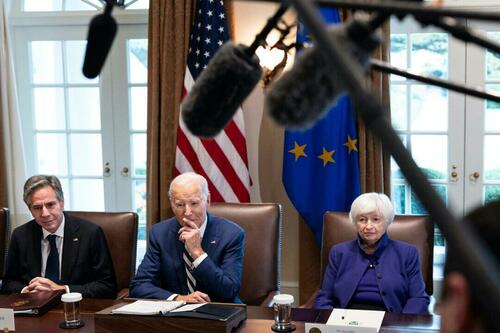 U.S. President Joe Biden, flanked by Secretary of State Antony Blinken (L) and Treasury Secretary Janet Yellen (R), hosts a meeting inside the Cabinet Room at the White House in Washington on Oct. 20, 2023. (Tom Brenner/Pool/Getty Images)
U.S. President Joe Biden, flanked by Secretary of State Antony Blinken (L) and Treasury Secretary Janet Yellen (R), hosts a meeting inside the Cabinet Room at the White House in Washington on Oct. 20, 2023. (Tom Brenner/Pool/Getty Images)
His remarks come as the cost of servicing America’s ballooning government debt reached $514 billion for the first seven months of the current fiscal year, becoming the second largest line item in the budget, and surpassing both the bills for national defense and Medicare spending.
The latest monthly statement from the U.S. Treasury—released on May 8—shows that the $514 billion spent on net interest so far this fiscal year has surpassed spending on both national defense ($498 billion) and Medicare ($465 billion).
Interest spending—now the fastest growing part of the budget—is currently greater than all the money spent on education ($128 billion), transportation ($70 billion), and veterans ($183 billion) combined.
The nonpartisan Committee for a Responsible Federal Budget (CRFB) predicts that, by 2051, spending on interest will be the largest line item in the budget. Currently, only Social Security spending ($837 billion) is greater than what’s being forked over to service the nation’s growing debt.
“Rising debt will continue to put upward pressure on interest rates. Without reforms to reduce the debt and interest, interest costs will keep rising, crowd out spending on other priorities, and burden future generations,” CRFB said in a statement.
It comes as a number of economists, business leaders, and lawmakers have issued warnings about out-of-control deficit spending that adds to the debt load.
House Speaker Mike Johnson (R-La.) said in October—the first month of the 2024 fiscal year—that it was already well past time to establish a bipartisan commission to tackle the federal government’s $34.6 trillion debt.
“The consequences if we don’t act now are unbearable,” he said at the time. Despite his calls for such a commission, the project remains stuck in limbo.
Many Democrats and left-leaning groups oppose the commission because they fear it would recommend cuts to Social Security, while some Republicans have expressed reluctance out of concern it would be a backdoor way to raise taxes.
No Longer a Pandemic
In his remarks to Bloomberg Television on Monday, Mr. Solomon said that some of the U.S. government’s massive debt-fueled spending in recent years may have been justified to prevent the economy from crashing during the COVID-19 lockdowns. However, he decried the fact that even though the pandemic is no longer a factor, the spending spree continues.
“The spending levels … are continuing at a pace that I think is raising our debt level and creating issues for us down the road,” he warned.
President Joe Biden in March unveiled a sweeping $7.3 trillion budget blueprint, which includes raising the corporate income tax rate to 28 percent from 21 percent, and forcing those with wealth of $100 million to pay at least 25 percent of their income in taxes.
The blueprint was panned by Mr. Johnson, who said it reflected an “insatiable appetite for reckless spending.”
Deficit spending in the United States hit $1.7 trillion in 2023, or 6.3 percent of gross domestic product (GDP), according to a recent report from the Congressional Budget Office (CBO). The agency estimated that deficit spending would grow to 8.5 percent of GDP by 2054.
At the same time, CBO projected that America’s debt-to-GDP ratio, which in the 1980s was around 35 percent of GDP, will grow to 166 percent by 2054, while warning that this would pose “significant risks” to America’s fiscal and economic outlook.
Mr. Solomon said that America’s deficit spending is an issue that “deserves a lot of attention.”
“Hopefully, there will be a lot more discussion as we move through the election and into the next administration,” he said, adding that, “we need to deal with the debt and the deficits.”
‘Dollar Will Be Worth Nothing’
Tesla CEO Elon Musk recently sounded the alarm on massive government spending, warning that unless steps are taken to slow down the growth of the U.S. national debt, the dollar will become worthless.
“We need to do something about our national debt or the dollar will be worth nothing,” Mr. Musk said in a post on X.
The billionaire tech mogul was reacting to a post about Gen. H.R. McMaster’s warning that the world is on the cusp of World War III while calling for a doubling in defense spending to prepare for potential threats.
Mr. Musk has repeatedly advocated for a negotiated end to the conflict in Ukraine to put a halt to the loss of life.
Like Mr. Musk, billionaire investor Warren Buffett has also warned about the “important” consequences of deficit spending. However, the Berkshire Hathaway founder predicted that, when push comes to shove, the government would opt to raise taxes rather than reduce spending.
“I think higher taxes are likely,” Mr. Buffett said on May 4 at Berkshire Hathaway’s annual shareholder meeting in Omaha.
“They may decide that some day, they don’t want the fiscal deficit to be this large because that has some important consequences. So they may not want to decrease spending and they may decide they’ll take a larger percentage of what we own, and we’ll pay it,” he said.
 Warren Buffett (C), CEO of Berkshire Hathaway, speaks to the press as he arrives at the 2019 annual shareholders meeting in Omaha, Nebraska, May 4, 2019. (Johannes Eisele/AFP via Getty Images)
Warren Buffett (C), CEO of Berkshire Hathaway, speaks to the press as he arrives at the 2019 annual shareholders meeting in Omaha, Nebraska, May 4, 2019. (Johannes Eisele/AFP via Getty Images)
Analysts at the University of Pennsylvania estimate that when the debt-to-GDP ratio hits around 200 percent, it will hit the point of no return—when no amount of future tax increases or spending cuts could prevent the government from defaulting on its debt.
JPMorgan CEO Jamie Dimon has predicted that America’s debt-to-GDP ratio would “hockey stick” upward at some point, meaning rise sharply and become unsustainable after a period of relatively gradual increase.
“It is a cliff. We see the cliff. It’s about 10 years out. We’re going 60 miles an hour,” Mr. Dimon said, speaking on a panel at the Bipartisan Policy Center in Washington at the end of January 2024.
The International Monetary Fund (IMF) has also sounded the alarm on the Biden administration’s fiscal stance, warning that its massive deficit spending and ballooning public debt threaten to stoke inflation and—potentially—even spark financial chaos.
-
Site: Public Discourse
Editors’ Note: This week, we are running a four-part series on the necessity of beauty across contexts: art, homemaking, architecture, and education. This series critically examines the role of beauty in renewing culture. This is the second essay, in which Ivana Greco explores the necessity of a fresh understanding of homemaking as essential to a flourishing society.
Stay-at-home moms and dads get called many things these days, but they’re rarely called artists or craftsmen. That should change. Understanding homemaking as a creative art form available to ordinary people may seem odd or anachronistic. If media outlets consider the beauty of homemaking at all in 2024, it is usually relegated to surveying the interior design choices of the wealthy. Glossy magazines at grocery store checkout lines portray elegant, expensively furnished rooms. Instagram and TikTok offer plenty of opportunities to view—perhaps with jealousy—the impeccable homes of the rich and famous.
There is nothing wrong with beautiful houses, of course. Indeed, aspiring to create an attractive, pleasant home is a good and worthy goal. But the beauty of homemaking is not merely in tastefully choosing home décor or paint colors. Nor is it only available to those with the time, money, and lack of rambunctious children needed to create a magazine-worthy house. Instead, it is a much broader and deeper skill that can help provide the foundations of a well-lived life. We have lost this more comprehensive understanding of the beauty of homemaking due to deliberate policy choices pushed by activists in the second half of the twentieth century. In the twenty-first century, we should reverse course and seek to restore greater respect for the hard work, imagination, and skills that go into creating a well-functioning home and family.
From Art to Obsolescence
In the nineteenth century, homemaking was generally understood to be a skilled occupation requiring a specific set of abilities, knowledge, and creativity that were vital to every home. Society needed craftsmen, such as carpenters, smiths, weavers, and shoemakers—but it also needed competent homemakers and housewives. The author Isabella Beeton, who published the best-selling treatise Mrs. Beeton’s Book of Household Management in 1861, explained: “I have always thought that there is no more fruitful source of family discontent than a housewife’s badly-cooked dinners and untidy ways.” Thus, she devoted enormous effort to writing her book, which quickly sold millions of copies in Victorian England. Beeton saw her housekeeping manual as providing a public service, since “a mistress must be thoroughly acquainted with the theory and practice of cookery, as well as be perfectly conversant with all the other arts of making and keeping a comfortable home.”
Similarly, in the United States, Catharine Beecher (sister to the famous abolitionist Harriet Beecher Stowe) wrote in her Treatise on the Domestic Economy that American women should not consider the art of domestic work to be beneath them or reject housewifery in favor of supposedly more sophisticated artistry. Beecher argued:
For example, to draw a large landscape, in colored crayons, would be deemed very lady-like; but the writer can testify, from sad experience, that no cooking, washing, sweeping, or any other domestic duty, ever left such deplorable traces on hands, face, and dress, as this same lady-like pursuit. . . . [E]very American woman, who values the institutions of her Country, and wishes to lend her influence in extending and perpetuating such blessings, may feel that she is doing this, whenever, by her example and influence, she destroys the aristocratic association, which would render domestic labor degrading.
To be sure, for many in the nineteenth century, the valorization of the beauty of housewifery went hand in hand with the idea that the “domestic sphere” was the only sphere that women were suited to occupy. Further, though women were responsible for running the domestic sphere, many understood them as doing so primarily for the comfort of men (rather than for the entire family). The famous Victorian poem The Angel in the House, for example, contained the lines: “Man must be pleased; but him to please/is woman’s pleasure; down the gulf/of his condoled necessities/She casts her best, she flings herself.”
Building on this nineteenth-century understanding of the value of housewifery, in the early twentieth-century United States, homemaking was still generally respected as a skilled occupation. Indeed, some were beginning to hope that women might be able to combine both their homemaking skills and their professional achievements. Long before anyone spoke of “having it all” or “work-life balance,” a 1926 article in The Atlantic titled “Homemaking and Careers” envisioned a future in which women benefited both from education in “the art of homemaking” and professional training for the “many [women who] will wish to earn their living in productive work outside the home.” The author hoped that women would no longer need to choose between home and career: “Why should they not round out their lives with many interests and carry on simultaneously different lines of activity—each in its proper place and each contributing directly to the fuller life?”
That vision, however, never came to fruition. Fifty years later, the ideal of homemaking as a special art in which one might seek to become skilled was almost dead. For many second-wave feminists in the 1960s and 1970s, the pursuit of the worthy goal of equal legal rights and career opportunities for women came at the expense of devaluing the work done by homemakers. Consider a 1975 conversation between Betty Friedan, the noted American author of The Feminine Mystique, and Simone de Beauvoir, the French author of The Second Sex. Friedan had written that no educated woman could find fulfillment in caring for home and family: “There are aspects of the housewife’s role that make it almost impossible for a woman of adult intelligence to retain a sense of human identity.” Nevertheless, Friedan argued that homemakers were deserving of protection and social support. In response, de Beauvoir claimed that in an ideal society, housewifery would be prohibited as an occupation, and all women would be required to enter the workforce. De Beauvoir said:
No woman should be authorized to stay at home to raise her children. Society should be totally different. Women should not have that choice, precisely because if there is such a choice, too many women will make that one. It is a way of forcing women in a certain direction.
Under this worldview, homemaking has no beauty or intrinsic value. It is nothing but unremitting drudgery that infantilizes and oppresses those engaged in it. Friedan argued that women could not thrive as homemakers. De Beauvoir also viewed housework as oppressive and suggested women needed to be freed from it even against their will, claiming that laundry, cooking, and cleaning should be managed collectively outside the home by both men and women—otherwise too many women would choose to stay at home. For de Beauvoir, “women will still be oppressed” as long as “the family and the myth of the family and the maternal instinct are not destroyed.”
Restoring Respect for the Craft
While few people today find the idea of being “liberated” from all family ties appealing, the view of housework and childcare as oppressive has remained popular. Dealing with household tasks is now often described as “the mental load,” which is perceived as an unequal burden falling on women that “means many feel they cannot physically or mentally put in the extra hours demanded by many workplaces, so the gender pay gap continues to widen.” This “mental load,” combined with U.S. standards for parenting, has been deemed so oppressive that author Jessica Grosse wrote a book titled Screaming on the Inside: The Unsustainability of American Motherhood.
While this gloomy view of homemaking is responding to real issues in many families’ lives, I believe it is neither helpful nor true to view caring for the home (or babies) as unremitting drudgery that all parents in a just society should be able to outsource. Among other things, it ignores the little moments that form the warp and weft of a family. Eating a home-cooked meal together, taking the time to sing a fussy baby to bed, baking a birthday cake with a child: these small things are often what knit spouses together, and children to parents. Likewise, it ignores the fact that homemaking is truly a skill developed over time, meaning that many families benefit when one person can put in the effort and thought required to develop that skill. Anyone who has dealt with the modern puzzle of trying to figure out how to get all the kids to school, to baseball practice, music lessons, and so forth on time with all their associated homework, equipment, etc. quickly understands how “Project Management” and “Logistics” are specialized fields in the paid workforce. Making a packed lunch seems like a small thing until you’ve driven 45 minutes for a kid’s activity only to realize you left the cooler with the food for all your kids at home!
Pope St. John Paul II once wrote: “Not all are called to be artists in the specific sense of the term. Yet . . . all men and women are entrusted with the task of crafting their own life: in a certain sense, they are to make of it a work of art, a masterpiece.” To reject the importance of homemaking is to reject the importance of crafting a good family life. There is, to be sure, a lot of work involved in taking care of a home and family. Much of that work is repetitive and may look unsophisticated to someone unfamiliar with the mental gymnastics that go into doing it well: cleaning the kitchen floor, changing diapers, making sandwiches—often while coping with the distractions and chaos of small children. However, even for those we widely acknowledge as skilled craftsmen and artisans, the same is true. An excellent stonemason will spend many hours repetitively working on the same task. Through skill and expertise, the wall he makes will be both beautiful and useful. Similarly, a seamstress spends much of her time carefully measuring, cutting, and stitching. The process may look boring to an outsider, but this doesn’t mean the shirt she eventually produces will be any less lovely or practical. Likewise, an ER nurse spends much of her time coping with chaos and interruption: we usually recognize that this means her job requires more skill, while somehow the homemaker is less respected because she cannot do her work without interruption.
I would suggest that homemaking today remains a form of skilled craft, in which a woman—or a man—uses experience and intelligence to create something that is both beautiful and functional. The difference, of course, between the art of homemaking and other kinds of art is that homemaking’s beauty is often not produced in the form of a physical object. Much of the beauty of homemaking is fleeting and intangible. It might look like a mother reading a favorite book (for the fifth time) to a toddler who just loves every repetition of Little Blue Truck. It might also look like a dad who can take the time to listen and talk extensively to a son devastated by a heartbreaking loss in a championship sports game. A daughter might bake a special birthday cake for her mother’s 70th birthday—but a few days later that cake will probably be gone. Indeed, much of the beauty of homemaking comes in tending relationships with families, friends, and communities. Thus, a family can live in a small apartment with battered furniture and plates from Goodwill but still have a beautiful home, if the relationships between the family members have been carefully nurtured and grown.
Understanding homemaking as a craft that produces beautiful (if intangible) results should hopefully encourage young men and women who are thinking about caring for a home and/or children. For the young mother or father overwhelmed by all there is to do and feeling incompetent in the face of the multiple—often conflicting—demands of house and children, it may help to know that homemaking is a skill to be developed over time. Just as Michelangelo honed his abilities for many years before painting the Sistine Chapel, adults may find with each passing year that their skills at cooking, cleaning, shopping, and parenting develop. Most importantly, this vision of homemaking makes clear that rather than an oppressive burden to be lifted, it is a socially useful occupation that should be supported and encouraged. Valuing families and the home means valuing the beauty and artistry of homemaking.
Image by fizkes and licensed via Adobe Stock.
-
Site: Zero HedgeOpenAI 'Exploring' How To Responsibly Generate AI PornTyler Durden Tue, 05/14/2024 - 20:00
OpenAI, maker of ChatGPT, has recently disclosed plans that could revolutionize its technology’s applications, signaling a potential shift in its traditionally stringent content policies. According to draft documentation released last week, the company is exploring how to 'responsibly' introduce not-safe-for-work (NSFW) content through its platforms. The new policy is highlighted in a commentary note within the extensive Model Spec document, sparking a complex discussion about the future of AI in generating sensitive content, Wired reports.
 Unstable Diffusion is a NSFW AI image generator with minimal content restrictions. Unstable Diffusion
Unstable Diffusion is a NSFW AI image generator with minimal content restrictions. Unstable Diffusion
"We’re exploring whether we can responsibly provide the ability to generate NSFW content in age-appropriate contexts through the API and ChatGPT," the note reads. "We look forward to better understanding user and societal expectations of model behavior in this area."
Current usage policies prohibit the generation of sexually explicit or even suggestive materials. However, the document suggests a nuanced consideration: the possibility of allowing NSFW content in age-appropriate contexts. This potential pivot is not about promoting explicit content indiscriminately but rather understanding societal and user expectations to guide model behavior responsibly.
OpenAI is considering how its technology could responsibly generate a range of different content that might be considered NSFW, including slurs and erotica. But the company is particular about how sexually explicit material is described.
In a statement to WIRED, company spokesperson Niko Felix said "we do not have any intention for our models to generate AI porn." However, NPR reported that OpenAI's Joanne Jang, who helped write the Model Spec, conceded that users would ultimately make up their own minds if its technology produced adult content, saying "Depends on your definition of porn." -Wired
The concern extends beyond the direct implications of NSFW content. Danielle Keats Citron, a law professor at the University of Virginia, has emphasized the broader societal repercussions, noting that intimate privacy violations can severely impact targeted individuals’ lives, restricting their opportunities and personal safety.
Of course, there are already a lot of NSFW AI content generators using things like Stable Diffusion, many of which border on (or worse) virtual child exploitation that we're sure this guy would defend.
"Intimate privacy violations, including deepfake sex videos and other nonconsensual synthesized intimate images, are rampant and deeply damaging," she said. "We now have clear empirical support showing that such abuse costs targeted individuals crucial opportunities, including to work, speak, and be physically safe." According to Citron, OpenAI's potential embrace of NSFW content is "alarming."
OpenAI’s announcement addresses an ongoing debate about the balance between technological innovation and ethical responsibility - particularly when it comes to setting precedents for how AI technologies might handle sensitive content in the future. The engagement with various stakeholders, as OpenAI spokesperson Grace McGuire told the outlet, noting that the Model Spec was an attempt to "bring more transparency about the development process and get a cross section of perspectives and feedback from the public, policymakers, and other stakeholders."
Earlier this year, OpenAI’s chief technology officer, Mira Murati, told The Wall Street Journal that she was “not sure” if the company would in future allow depictions of nudity to be made with the company’s video generation tool Sora.
AI-generated pornography has quickly become one of the biggest and most troubling applications of the type of generative AI technology OpenAI has pioneered. So-called deepfake porn—explicit images or videos made with AI tools that depict real people without their consent—has become a common tool of harassment against women and girls. In March, WIRED reported on what appear to be the first US minors arrested for distributing AI-generated nudes without consent, after Florida police charged two teenage boys for making images depicting fellow middle school students. -Wired
While OpenAI's usage policies prohibit impersonation without permission, the decisions made by OpenAI could have far-reaching effects. Of course, they also realize that if they don't compete in this space, someone else's AI will simply dominate, leaving OpenAI as the gimp.
-
Site: Zero HedgeCitadel's Ken Griffin Tells Qatar Audience: American Campus Chaos Is "Anarchy"Tyler Durden Tue, 05/14/2024 - 19:40
On day one of the 2024 Qatar Economic Forum in Doha, Citadel's Ken Griffin covered a wide range of hot-button issues. He criticized the Biden administration's latest wave of Chinese tariffs, the ongoing campus crisis terrorizing American colleges and universities, global geopolitical tensions, and former President Trump's potential comeback.
Griffin started the conversation by discussing soaring geopolitical risks from Eastern Europe to the Middle East to China. He warned, "We are living in a different world than what we fantasized just a few years ago."
"There are more tail risks that are harder to manage. That goes with this rise in geopolitical complexity," Griffin said. As we must note, the surge in conflicts is a direct symptom of a world fracturing into a multi-polar state.
Bloomberg provided a live blog of the event via the 'Top Live Blogs' function on the Terminal. BBG journos noted that Griffin criticized the Biden administration for new tariffs, announced Tuesday, but well telegraphed for the last several days, on Chinese electric vehicles, advanced batteries, solar cells, steel, aluminum and medical equipment. He called the move a continuation of 'incoherent economic policy,' adding a Trump administration would restore America's image abroad.
On the subject of the continued education crisis at American universities and colleges, of shady non-governmental organizations facilitating pro-Palestinian protests, he said:
"What's happening on campuses is not free speech, it's anarchy."
He added:
"Universities should be trying to encourage a constructive debate between students of different backgrounds."
Separately, in a Financial Times interview on Saturday, Griffin, who is one of Harvard's most prominent donors, said the Ivy League school needs to embrace "Western values" and pointed out the chaos is a byproduct of a "cultural revolution."
Back in Doha, Griffin also commented on the geopolitical shitstorm in Eastern Europe between Russia and Ukraine, the Middle East between Israel and Hamas, and worsening Sino-US relations.
"There are just larger tails that didn't exist seven or eight or 10 years ago," he said, adding that the only way to mitigate risk is to construct portfolios with protection, capitalizing off tail risk events.
The billionaire, who founded the $63 billion hedge fund Citadel, then commented on Trump's potential return to the White House, calling him a person who can't be pushed.
"He will exude a level of strength that will help stabilize the world in these trying times," the billionaire said. Bloomberg pointed out that he had yet to donate to the presidential campaign.
* * *
Watch here for the whole discussion:
-
Site: Zero HedgeHouse Oversight Cmte Probing Biden Voter Mobilization OrderTyler Durden Tue, 05/14/2024 - 19:20
Authored by Ben Weingarten via RealClearPolitics,
The House Oversight Committee is probing a controversial Biden administration executive order tasking the federal government with mobilizing voting groups it says are underrepresented.
In a letter obtained by RealClearPolitics, Chairman James Comer (R-Ky.) has requested that Office of Management and Budget Director Shalanda Young produce a slew of documents and information concerning the development and implementation of Biden’s sweeping “Executive Order on Promoting Accessing to Voting” no later than May 28, and a staff-level briefing by May 20.
The demand by the chairman of the House Oversight Committee signals an escalation in Republican lawmakers’ efforts to combat an effort they say may be unlawful, if not unconstitutional.
The administration characterizes its efforts as a remedy to “discriminatory policies and other obstacles … disproportionally affect[ing]” black, non-English-speaking, handicapped, and other minority voters. EO 14019 calls on all federal agencies to develop and execute corrective plans to “promote voter registration and voter participation.”
It instructs officials government-wide to consider “soliciting and facilitating approved, nonpartisan third-party organizations … to provide voter registration services on agency premises.”
Seeing the order as potentially enabling “the executive branch to circumvent the legislative process,” Comer is asking Young to clarify the “constitutional or statutory authority the President relied on,” as well as all “White House and OMB documents and communications” pertaining to the drafting of it.
In past oversight letters, including ones delivered in June 2022 by then-ranking Republicans on various committees, including Comer, members have also raised concerns that officials could violate the Hatch Act prohibiting their engagement in political activities in carrying out the order.
Senate Republicans have also questioned whether the act violates the Antideficiency Act, which precludes federal agencies from using funds “for a purpose that Congress did not explicitly authorize” – namely “voter mobilization.”
“Overreach by the federal government often leads to confusion and inconsistencies,” Comer also stated. He cites a recent letter from Mississippi Secretary of State Michael Watson to Attorney General Merrick Garland to illustrate this issue.
The order mandates that relevant agencies seek to ensure “access to voter registration for eligible individuals in federal custody.”
To satisfy that charge, the Magnolia State official notes that the U.S. Marshals Service is modifying contracts and/or intergovernmental agreements with jails “to provide voter registration materials and facilitate voting by mail,” and likewise that the Justice Department is working to “facilitate voter registration and mail voting for individuals in the custody of the Bureau of Prisons.”
He says these efforts create “numerous opportunities for ineligible prisoners to be registered to vote in Mississippi.” Illegal aliens, Secretary Watson warns, may be among those receiving information on how to register to vote.
The Biden administration issued EO 14019 in March 2021. Despite a raft of oversight requests from House Republicans of agencies within their respective committee jurisdictions, those agencies have largely withheld the strategic plans they were tasked with crafting and implementing, and information regarding the putatively non-partisan groups with which they have coordinated.
The White House has rebuffed RealClearInvestigations in its efforts to solicit details about an order that Republicans characterize as little more than a taxpayer-funded Democrat get-out-the-vote effort.
As RCI has previously reported, the Biden administration has sought to drive voter registration through agencies as diverse as the Departments of Labor, Housing and Urban Development via job training centers, public housing authorities, and child nutrition programs. U.S. Citizenship and Immigration Services has issued guidance calling for the agency to register voters at naturalization ceremonies.
The Department of Education has blessed the use of “federal work-study funds to pay students for “supporting broad-based get-out-the-vote activities, voter registration,” and other activities.
In January, over two dozen Pennsylvania legislators filed a federal lawsuit challenging the executive order. The Foundation for Government Accountability (FGA) – which has litigated with the Biden administration to pry loose documents concerning the order – submitted an amicus brief supportive of the suit, asserting that the agencies’ efforts have one thing in common: “They provide government welfare benefits and other services to groups of voters the vast majority of which have historically voted Democrat.”
Republicans’ concerns over the order extend to the involvement of the third-party groups with which agencies were to consider coordinating. The order itself was built on a blueprint from progressive think-tank Democrats. In a since-deleted but still archived analysis, the outfit estimates that if fully implemented, the order could generate 3.5 million new or updated voter registrations annually – a significant figure given that recent presidential elections have been determined by thousands of votes across a few states.
Dems as well as the American Civil Liberties Union have reportedly worked to implement the directive. Documents obtained by the Heritage Foundation’s Oversight Project and released earlier this month show that at a July 2021 listening session convened by the Biden administration, left-leaning activist groups encouraged some of the practices federal agencies would ultimately implement to carry out the directive, for example in targeting prospective voters in prisons and at naturalization ceremonies.
“Every participant whose party affiliation or political donation history could be identified by the Oversight Project was identified as a Democrat except for one Green Party member,” the report noted.
While the participants suggested efforts to target constituencies including criminals, immigrants, low-income families including those in public housing, and Native Americans, the Oversight Project observed that “There is no corresponding evidence of efforts [to] increase voter access and education in likely Republican constituencies.”
As RCI has also recently reported, Democrats have made purportedly non-partisan voter registration targeting groups that vote disproportionately Democrat a linchpin of their plans to prevail in recent election cycles.
“If the Biden Administration wants to use taxpayer-funded buildings to allow ‘nonpartisan third-party organizations’ to engage in voter registration,” Comer writes, “then the American people deserve to know who these organizations are.”
The Oversight Committee’s pursuit of information regarding the order comes in the wake of the House Small Business Committee’s recent escalation of its own probe of the order.
It recently subpoenaed two members of the Small Business Administration who refused to sit for transcribed interviews regarding an unprecedented partnership the agency inked with the Michigan Department of State. Under the relevant memorandum of understanding, among other things, state officials may conduct in-person voter registration at administration small business outreach events.
Fox News reported that the Small Business Committee found that nearly all – “22 out of 25 such outreach events have taken place in counties with the highest population of Democratic National Committee target demographics.”
In March, a federal judge dismissed the Pennsylvania legislators’ case challenging the executive order on grounds of standing.
In late April, the legislators took their case to the Supreme Court, filing a petition for writ of certiorari and motioning for expedited consideration of their request in hopes the nation’s highest court will rule favorably on the matter of standing prior to the 2024 election.
Ben Weingarten is a fellow of the Claremont Institute, senior contributor at The Federalist, and 2019 recipient of The Fund for American Studies' Robert Novak Journalism Fellowship, under which he is currently working on a book on U.S.-China policy.
-
Site: Zero HedgeRFK Jr. And AV24 Super PAC Sue Meta, Alleging Election InterferenceTyler Durden Tue, 05/14/2024 - 19:00
Authored by Matt McGregor via The Epoch Times (emphasis ours),
Independent presidential candidate Robert F. Kennedy and the super PAC backing him have filed a lawsuit against Meta Platforms, Inc., for election interference after it allegedly shadow banned the documentary “Who is Bobby Kennedy?” on Facebook and Instagram.
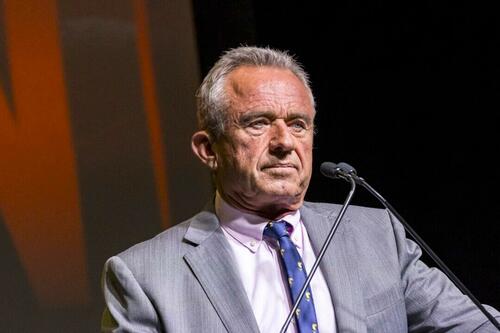 Presidental candidate Robert F. Kennedy Jr. attends a rally at the Val Air Ballroom in Des Moines, Iowa, on April 13, 2024. (Kathryn Gamble for The Epoch Times)
Presidental candidate Robert F. Kennedy Jr. attends a rally at the Val Air Ballroom in Des Moines, Iowa, on April 13, 2024. (Kathryn Gamble for The Epoch Times)
American Values 2024 (AV24) announced in a May 13 press release that they have filed the lawsuit in a California district court for violating the First Amendment and “the American people’s fundamental right to a presidential election decided by voters, not by trillion-dollar corporations.”
The complaint alleges that Meta “brazenly” censored speech supportive of Mr. Kennedy, then lied about its actions.
According to the complaint, Meta “sent users messages threatening to suspend their accounts or otherwise punish them if they sought to watch, share or even post a link to the film. And they made good on these threats, disabling and suspending users who did so.”
In addition, the complaint says that Meta stated that the film contained improper sexual or violent content.
When users attempted to comment, those comments were removed, the complaint alleges.
“Under the Support and Advocacy Clause of the Civil Rights Act of 1871, private companies and their officers and employees cannot in concert seek to prevent by force, threat or intimidation any citizen from engaging lawful speech supporting or advocating the election of a presidential candidate,” the complaint says.
After AV24 released the documentary, it began trending on X. However, Facebook and Instagram—both Meta-owned—allegedly suppressed “the organic reach of content they don’t want to spread,” the PAC said in a May 6 press release.
The film was also labeled with a COVID-19 vaccine disclaimer that referred users to other sources such as the Center for Disease Control’s website, the complaint said.
In response to The Epoch Times’ request for comment on the allegation last week, a spokesperson for Meta stated, “The link was mistakenly blocked and was quickly restored once the issue was discovered.”
In response to a request for an updated comment on the allegation of election interference in the lawsuit, a Meta spokesperson repeated the above statement.
‘Implausible’
AV24 said in its lawsuit that Meta’s claim of accidental censorship is “implausible on its face” and contradicts “the numerous messages users received from Meta offering other, equally implausible explanations.”
The documentary film, released May 3, is narrated by actor Woody Harrelson. The film is a biography of Mr. Kennedy aimed at providing a look into who he is as opposed to how mainstream media portray him.
It begins with Mr. Kennedy quoting from various media reports that paint him as a “mentally disturbed” conspiracy theorist instead of an environmental attorney who took on corporate malfeasance.
It discusses how he went after the pharmaceutical industry after meeting with mothers who believed vaccines injured their children.
“Right now big oil funds the Republicans, Big Tech funds the Democrats, Big Pharma and the military contractors make sure to donate to both,” Mr. Kennedy said.
“Who is liberal now and who is conservative? Who’s left and who’s right? These labels make less and less sense. I’ve been fighting corporate corruption for 40 years. I know how they work. I know how to clean them up. And that’s why I’m running for president.”
The lawsuit referenced what it calls Meta’s “different agenda, tilting the playing field in favor of, at the behest of, and in collusion with the current Administration.” The alleged collusion between Meta and the Biden administration is documented in the Murthy v. Missouri case pending before the U.S. Supreme Court.
The legal complaint also referenced a recent Congressional report entitled “The Censorship-Industrial Complex: How top Biden White House officials coerced Big Tech to censor Americans, true information, and critics of the Biden Administration.”
“With extensive quotation from internal Facebook emails and other documents, the report describes in detail ‘collusion’ between Facebook and the White House eventually resulting in an agreement by Facebook pursuant to which the platform would and did implement censorship policies suppressing critics of the Administration, particularly critics of its COVID policies, specifically including Mr. Kennedy,” the complaint says.
AV24’s co-founder Tony Lyons said that polls show 20 percent of Americans aren’t aware that Mr. Kennedy is running for president, while another 30 percent have been fed misinformation about him and his policies.
“Reaching those voters could change the outcome of the 2024 election,” Mr. Lyons said. “How are people supposed to find out that they have a viable alternative candidate—that they don’t have to vote for the lesser of two evils—when Meta is colluding with the Biden administration to block key channels for communicating with the American public?”
‘It Works’
Jay Carson, former advisor to President Bill Clinton and now to Mr. Kennedy, produced the film.
He stated in the documentary that during campaigns, big corporations hire writers in media like him to attack those who challenge their power.
“Here is the way the playbook works: First they attack you broadly and they question your facts,” he said.
“They say you’re lying and it’s ferocious. But if you keep on moving after that, they move on to character assassination. They take on who you are as a person. They dig up everything bad in your past and leak it to the press.”
If this doesn’t work, Mr. Carson said, “they say you’re a liar.”
If liar doesn’t work, they call their target an anti-semite and a racist.
“No two slurs in America are worse than those,” Mr. Carson said. “No slur, except crazy. Crazy, or kook, or crank, or nutjob are their mainstays. That’s their nuclear option.
“If they can get everyone to dismiss you as a wacko nutjob, everything you say is suspect and then they can get back to selling whatever thing it is you said might not be safe. And here’s the thing: It works.”


